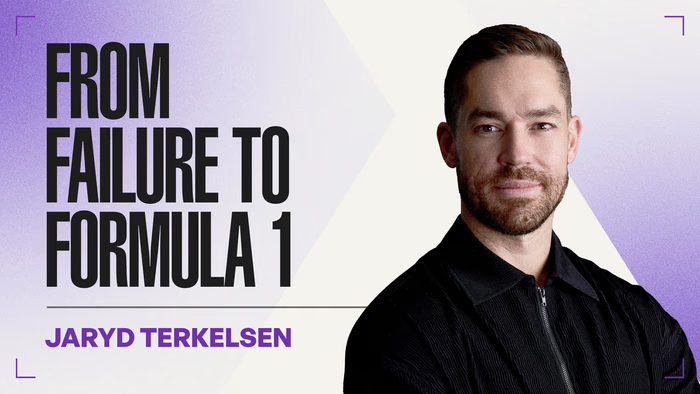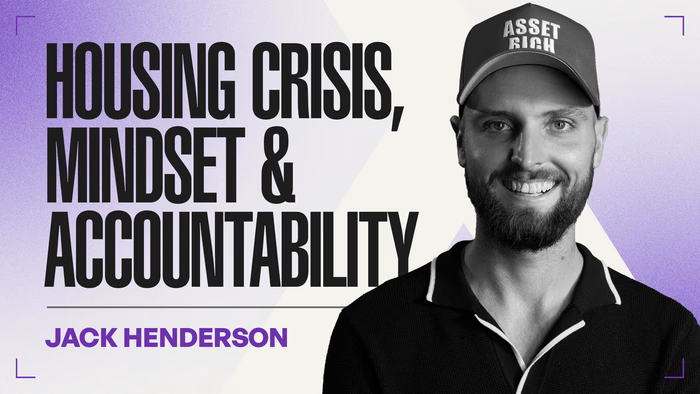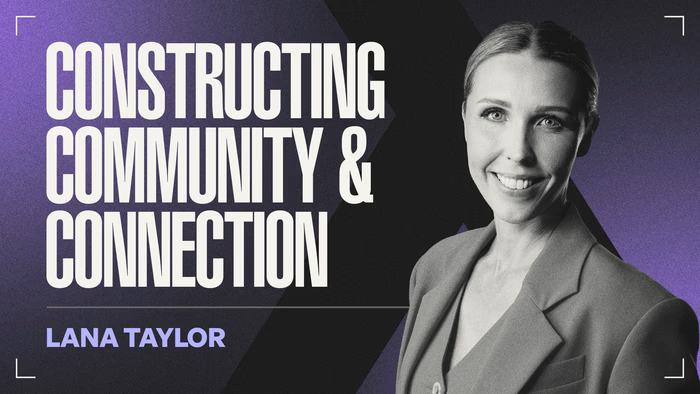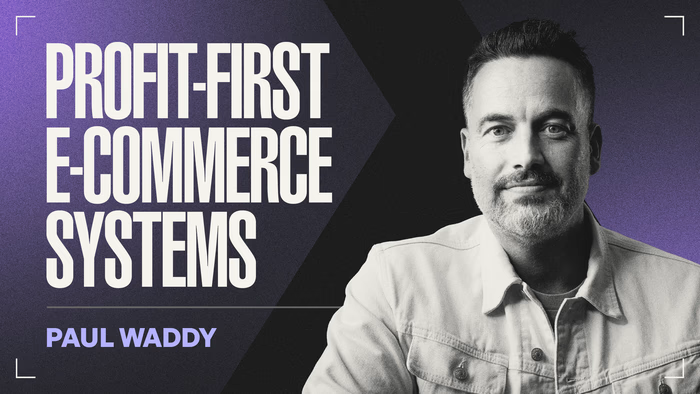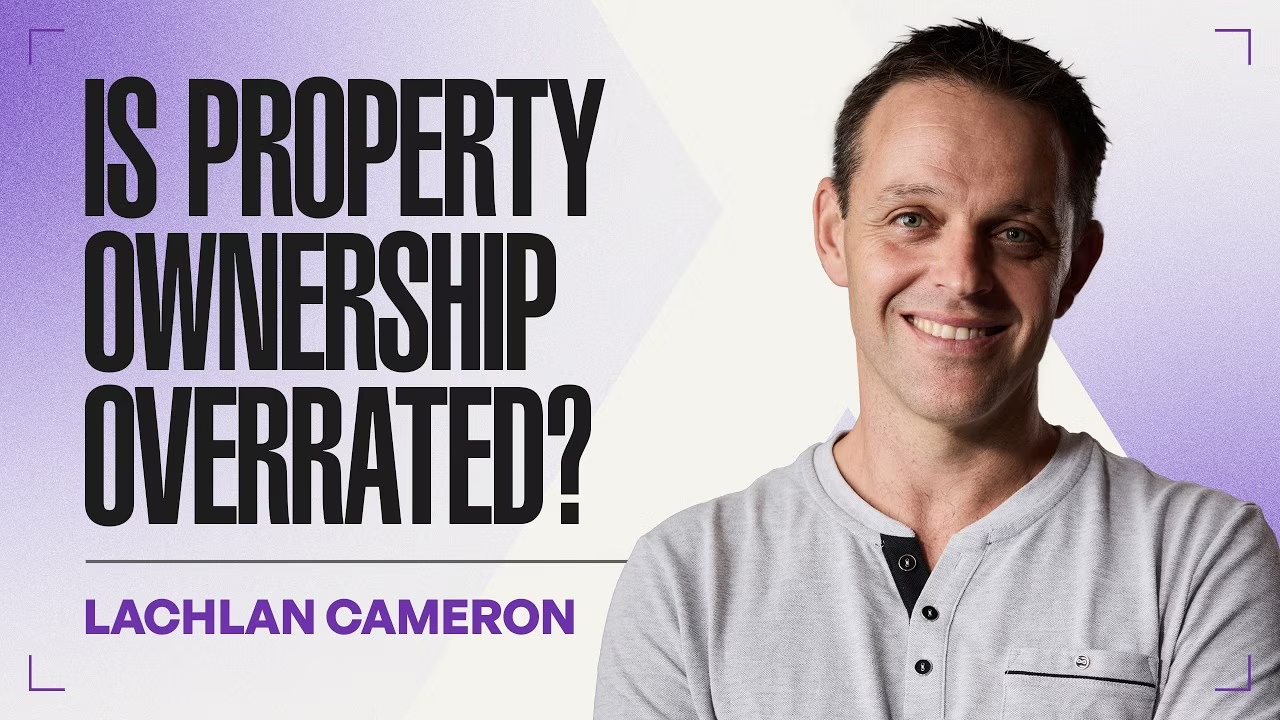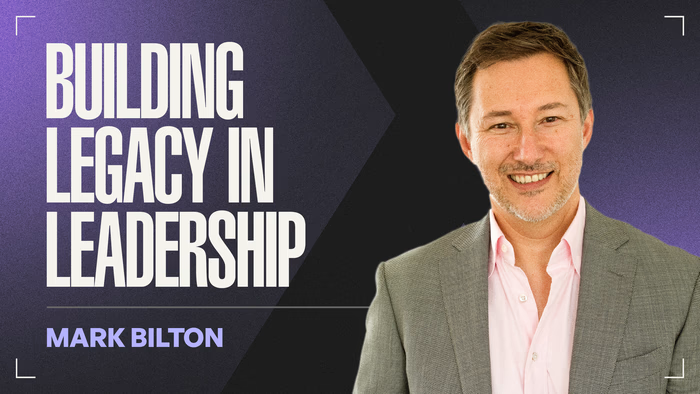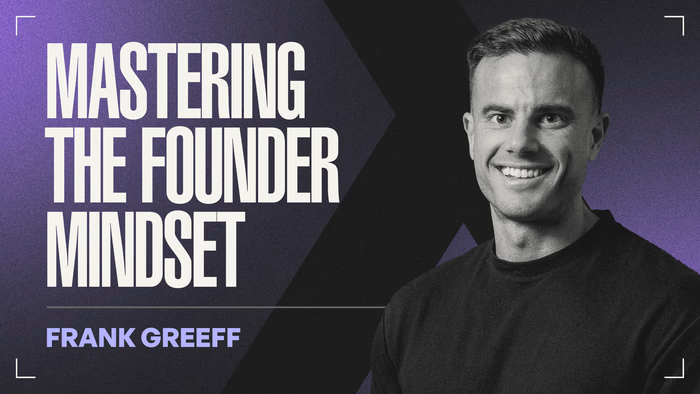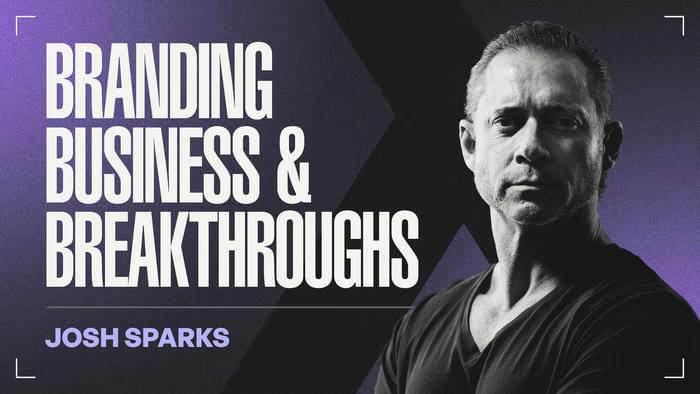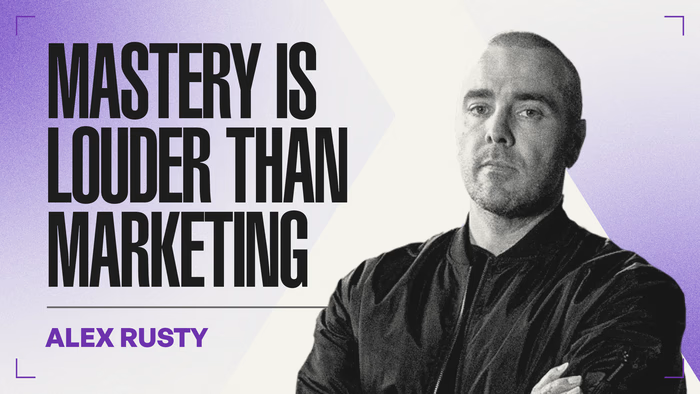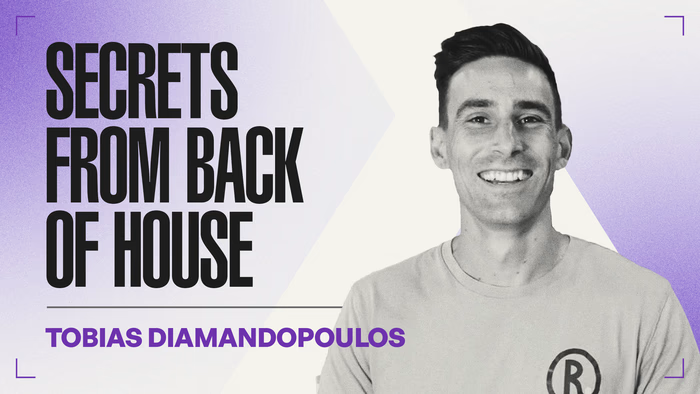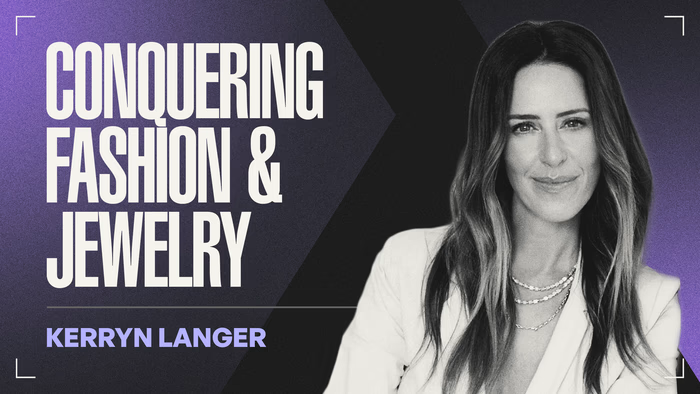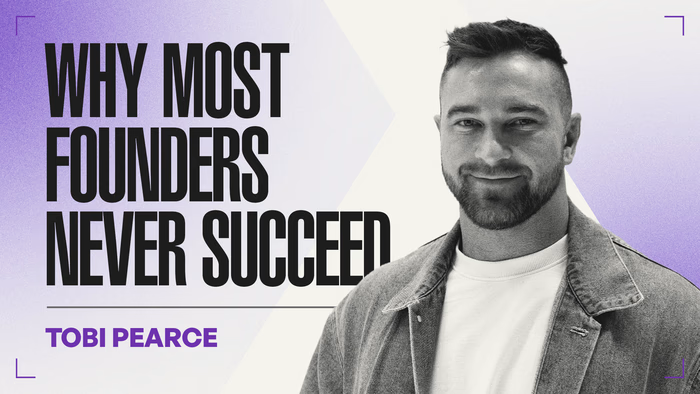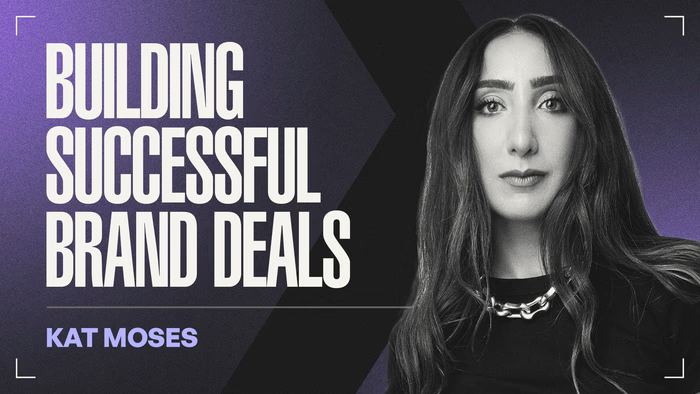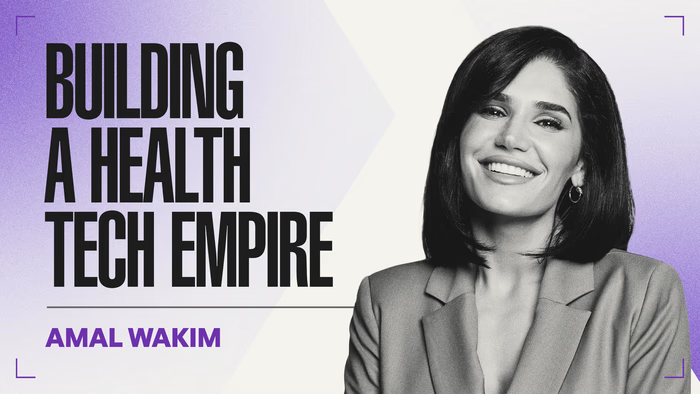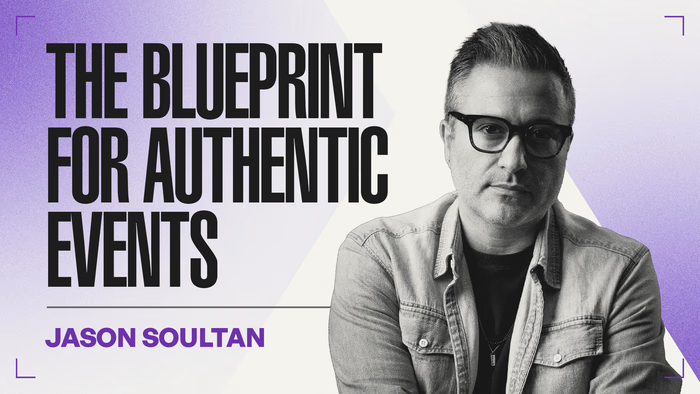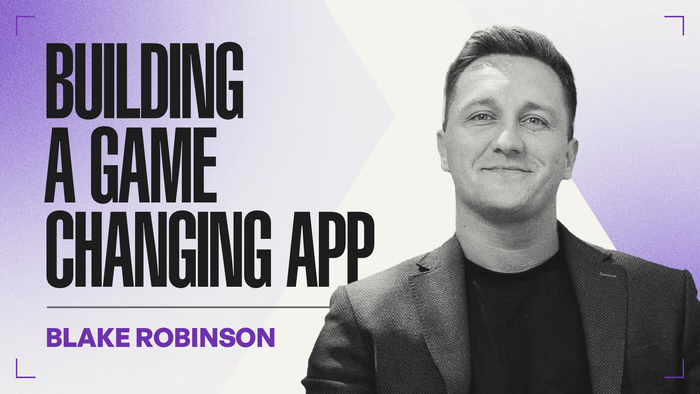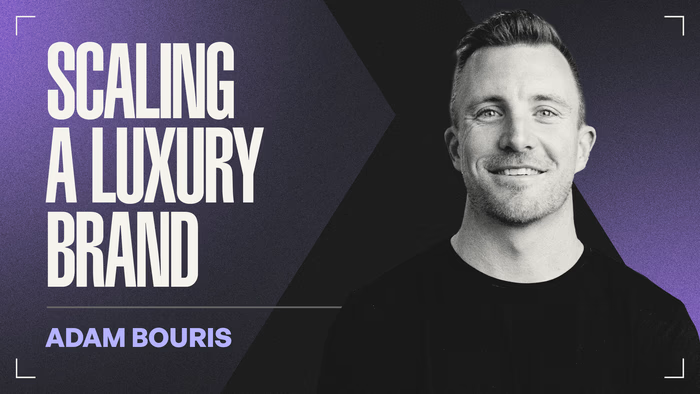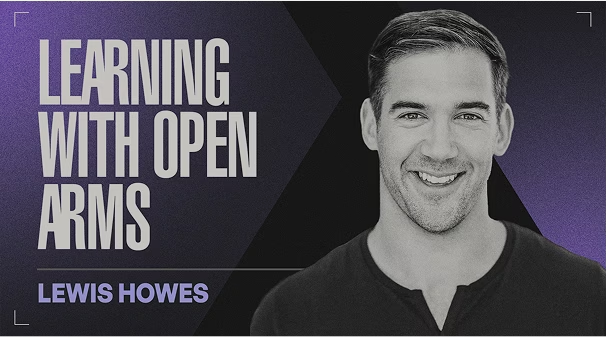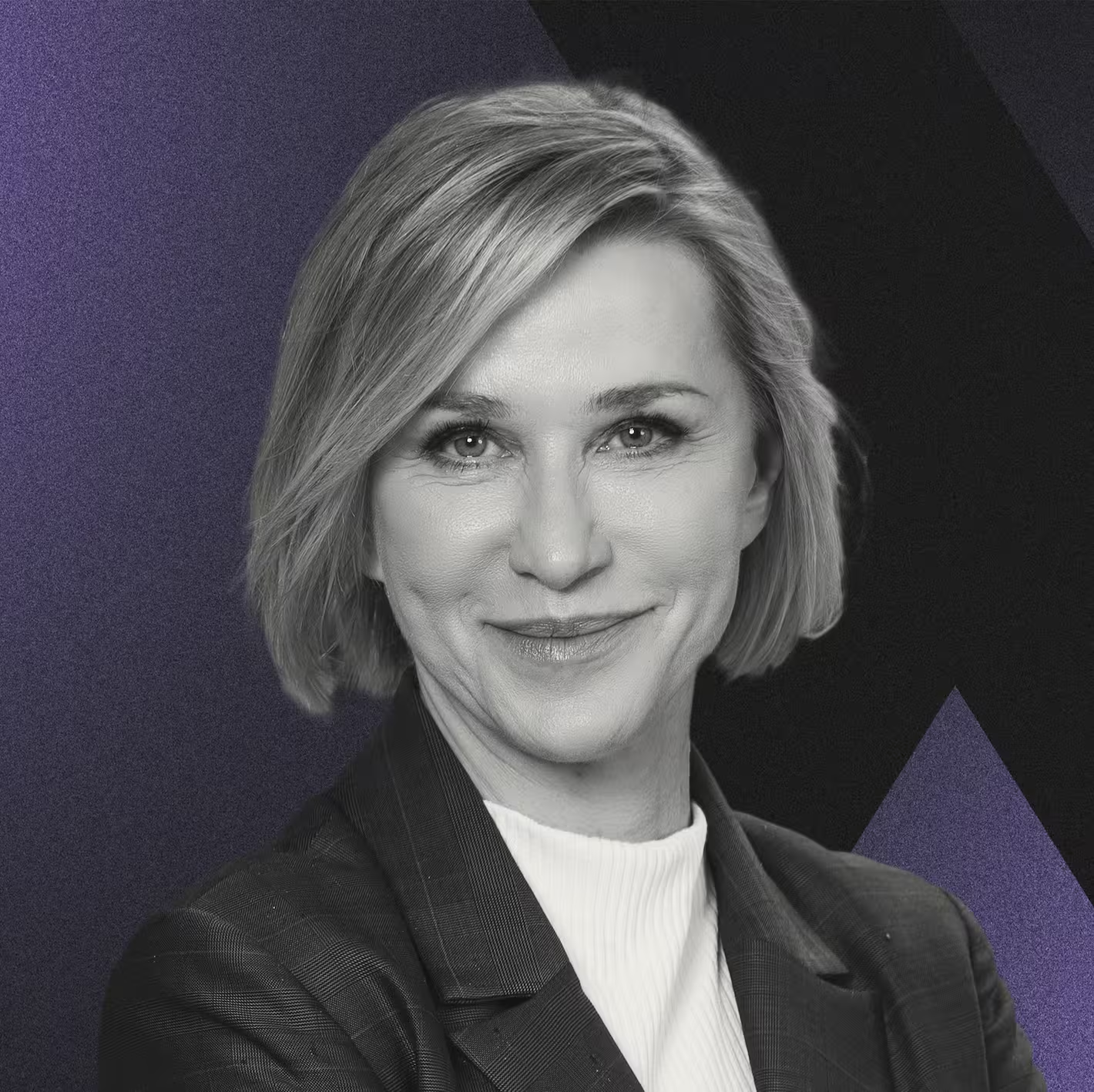


TLDR
Summary
Maria Halasz, CEO and Co-founder of Stride Equity, shares the mindset and strategies required for success in venture capital and entrepreneurship, drawing from her journey as an immigrant to Australia who started with almost nothing. She emphasizes the importance of relentless hunger and learning as key motivators, stressing that focusing on detail while maintaining a strategic big-picture view is essential for a leader. For founders seeking capital, Halasz advises extreme transparency with friends and family (the "3 F's": family, friends, and fools) and a data-driven approach when pitching to professional investors. She highlights that a successful pitch requires more than just a great idea; it demands a likable, teachable founder who solves a real problem in a large market and has a clear exit plan. Ultimately, Halasz encourages founders to "follow their curiosity," not just their passion, as they relentlessly jackhammer through obstacles to build their vision.
Highlights
- Immigrant Mentality: Halasz arrived in Australia at 18 with minimal English and only $50, which created a constant craving—a "hunger" and inner drive that became her biggest motivator to prove herself and continuously learn.
- Falling into a Career: She unintentionally started her career in a biotech startup, discovering her talent for both scientific detail and strategic vision while handling IPOs and securing multi-million dollar government grants.
- Definition of a Startup: A startup is defined by an entrepreneur, a vision, and an idea that requires hard work, regardless of its size, and often involves a season without profit.
- The "3 F's" of Initial Funding: Most companies are initially funded by Family, Friends, and Fools. Halasz's crucial advice for this stage is extreme transparency with investors about the risk of losing everything and formalizing all agreements in writing, as disputes often arise when the business is successful.
- Bridging the Capital Gap: In Australia, the gap between the "3 F's" and large Venture Capital (VC) funds is often filled by alternative sources like Angel investor groups, syndicates, and Equity Crowdfunding platforms like Stride Equity, which allow retail investors to participate.
- VC Green Flags: Key traits VCs look for in a pitch include a likable, motivated, and dedicated founder who has a track record of success, a solution to a real problem (not a product seeking a market), a large market opportunity, a strong execution plan, and a mapped-out exit plan.
- VC Red Flags: Major pitfalls for founders include claiming to have no competition (a "no-go" for investors), being overly emotional about the company's valuation instead of being data-driven, and presenting an investment with an unclean capital structure (e.g., a mix of old, messy convertible notes).
- The VC Value Add: Beyond capital, VCs offer huge upsides like open doors to industry partners (including CEOs of major companies), decades of experience and advice that save time and money, and sometimes even direct assistance with branding and other business needs.
- "Bootstrap Until You Can't": Halasz advises founders to use their own resources until doing so jeopardizes the success of the business, arguing that raising capital adds an extra, time-consuming layer of compliance, reporting, and management that should not be celebrated prematurely.
- Mantra for Founders: The one piece of advice she would give all founders is: "Do not follow your passion, follow your curiosity." Find a problem that gives you joy along the way because that is what ultimately delivers success.
Transcript
00:00:00 - 00:01:06
but when I came to Australia I started with not zero but minus I mean I had had 50 bucks in my pocket and no you know no English so you know I really had to prove myself to others you go through that you know and then you realize that actually none of that matters over four years I realized what a startup was like a company that had no Revenue so whilst I was hired as an analyst looking after preclinical studies animal studies in universities Etc timately I was responsible for writing $5 million
00:00:33 - 00:01:37
government grounds on today's episode of agency I sat down with Maria Hass the CEO and co-founder of stride Equity Australia's first venture-backed Equity crowdfunding platform stride Equity is focused on closing the funding gap for emerging businesses while providing wholesale and Retail investors with access to investment opportunities join us as we unpack what exactly venture capital is how a business should pay pitch to venture capitals and so much more Maria welcome to the agency podcast
00:01:09 - 00:01:59
we're excited to have you here thanks Dan I'm pumped for this one because I think when it comes to VC it's something that I've been excited to learn a lot more about a lot of our clients here ask a lot of questions about it and they're trying to understand how they can raise capital for their ideas and their businesses and how they can better navigate the world of business and it can be a little scary so I'm excited to dive in and and really try to understand this world a lot better I'm excited to
00:01:33 - 00:02:43
be here we're we're pumped so for you A lot of people um who weren't born in Australia let's say and they move here it can be a little challenging to maybe overcome some of those initial hurdles for you what were some of those initial hurdles uh when moving to Australia and trying to get acquainted and network and meet people so I came here when I was 18 and I didn't speak English certainly not very well so yeah I think that was one major hurdle that's a big hurdle you can like wave and gesture but
00:02:08 - 00:03:11
yeah yeah um the really fun thing was though that I met these fabulous Hungarian I'm Hungarian Hungarian people and they've um allowed me to navigate the space well so I got back into a course that I was already doing in Hungary so the subjects were familiar um I learned very quickly you know I watched a lot of um americ um soap operas so I developed an American accent in Australia like me when I was a child yeah and when you were telling me that story I I completely could relate to that cuz a
00:02:40 - 00:03:35
lot of people when they meet me they're like where are you from I'm like here and they're like you sound Canadian or American and it's just I was immersed in pop culture when I was a child and I just picked up on the accents you picked up an American accent in Australia yes exactly exactly I got rid of it fairly soon but you know certainly that was my beginning so that was a huge did you have a go-to so proper that you loved um um can't remember any of them now I think like um um that um friend the I
00:03:07 - 00:04:12
can't remember the name of the podcast of the of the um show the N the N I like the N so you know this style of really educational deep and meaningful picking up all the slang and all the rest of it exactly exactly I didn't understand half of it by the way but that was the whole point that by the end of it you you kind of learned so for you what was that pressure like in the initial stages when when moving here initially and trying to I guess yeah Network and meet people so I had a really easy time because I
00:03:39 - 00:04:55
arrived here on the 9th of October and um the deadline for applying for University entry was something like 12th of November so very quickly I had to go to university uh find the um Admissions Office enroll find mentors who could assist me with the enrollment so because that's what I wanted to do um I also um second day I arrived in per in greylands Immigration Center so second day I was walking around in greylands um um and actually in Wembley and there was this open door and I looked up it was a restaurant it was
00:04:17 - 00:05:33
called dirty dicks wow theater restaurant so I went in there and I said I I want a job kind of mean my broken English I said by the way we want a kitchen hand so I suddenly became part of that Community which was a theater people because it was a theater restaurant you know restaurant people entertainers and really Rowdy crowds at now so I you know fell into became part of a community very quickly what kind of theater was it um in Old English um English music kind of like medieval yeah so it's like getting on
00:04:55 - 00:05:53
the show kind of Wen wenches and wenches outfits and uh the the guys in their you know puffy trousers and guitars and singing you know Old English things that I I actually didn't understand at the time because I didn't speak English so it just sounded really good it sounds very overwhelming you're in this wild scenario with this unique group of people you're studying you're trying to learn the language take me from there like what was the next stages there off to like when did you start to really
00:05:24 - 00:06:27
pursue the career and um figure out what the next phase of your life was going to be look I haven't really given it a lot of thought in fact as part of that Community I went to party one night and at that time I finished my degree and I met this guy and he was running a biotechnology company and he said I need an analyst who understands biotech because we've got all these preclinical studies in universities so um I said that's me there you go and I you know I just volunteered and I got I got my
00:05:56 - 00:07:12
first job in biotechnology in a startup essentially so um over four years I realized what a startup was like you know a company that had no Revenue a company that had uh a few employees that had to do everything so whilst I was hired as an analyst looking after preclinical studies animal studies in universities Etc ultimately I was responsible for writing $5 million government grants and business plans and um actually we listed the company during that time so I also went through an IP and uh reported directly to the board so
00:06:34 - 00:07:41
it was an incredible learning experience with really good people very clever people so I fell into it I had no plan no design on my career but I suddenly fell in love and I knew that that whole startup environment whether it's biotech technology generally is where I want it to be from your experience as an analyst in that situation what how would you define a startup is it traditionally in a setting where they're doing a lot of work creating a lot of materials resources data productizing all the rest of it yet
00:07:07 - 00:08:18
without any profit for a season how how would you define a a traditional startup in that kind of scenario I would say startups come in different shapes and sizes you can define a startup as you know I want to open a car wash that's a startup but then you can Define startup I've got this amazing idea it involves this new technology I need all these people around me it's going to take 5 years before we even know whether it works or not then another 5 years to productize it and really put it you know to the market do
00:07:42 - 00:08:46
they want it so I think startups come in all shapes and sizes fundamentally it starts with the person an entrepreneur a vision an idea and someone was prepared to do the hard work to get from A to B to C to Z so you're in this setting you're in this setting you're getting acquainted with this new world like you said you kind of fell into it which is I love it when there's a story around Serendipity like things just kind of evolved and happened and you take heed in those situations what's your personal view on
00:08:15 - 00:09:27
motivation in that setting for you is it something that you are seeking or is it something that naturally comes to you to really invest yourself into something like a startup and you know spending a long hours I imagine and trying to link things together and uh doing IPO what was it that was sustaining your motivation through that season I guess um what I would say is constant craving and that is um it sounds really desperate and it is a little bit desperate but you know you have to have hunger you really have to be hungry for
00:08:50 - 00:10:01
something and um and I'm still really really hungry right now in in that you know I'm not there where I want to be it's I'm not quite sure where I need to be but so long as you've got that inner drive that that hunger that you want to pursue I think that's a pretty strong motivator and then of course um uh the need you know and that um you know you need to move yourself forward you know you can't stay in one place you have to keep learning you need to you need to keep moving so to me um you know that
00:09:26 - 00:10:41
that constant hunger is the biggest motivator and you know earlier in my life it's certainly been proving that I'm worthy proving that I'm okay proving that I fit in you know I grew up and I was a very clever kid and talented and promoted through the system in Hungary but when I came to Australia I started with not zero but minus I mean I had had 50 bucks in my pocket and no you know no English so you know I really had to prove myself to others and you know you go through that you know and
00:10:03 - 00:11:04
then you realize that actually none of that matters but it's a long journey you know luckily I'm at the point now where I can put that away most of the time at least and I can just really focus on being hungry for new things hungry for learning hungry to get to know new people I I get so inspired by the young people around me you know I'm I'm working with I'm one of the most amazing young VCS and so you know that motivates you too when you were in that season uh with the IPO and the initial what was it
00:10:34 - 00:11:34
four years yes what was the realization that you had that you found like your gift or your calling were there moments where you're like I'm really good at XYZ what were those discoveries for you I think the most amazing thing was to me is that I was working in this company and I was doing lots of different things and I really loved all the diff variety of the different things and then one day we had to put together that big businessman went to the board and then went to the government for government grant funding
00:11:04 - 00:12:17
and one of the directors who I always thought that he really disliked me like he had no time for me he he was one of those people who probably didn't like women very much didn't think that you know uh women could contribute enough but in any event I just felt really underappreciated by him and and actually dismissed and at some point he just turned around in a board meeting when I was presenting I said did you do this this is really good and I thought H maybe maybe I am good some things but I mean I just loved you know
00:11:41 - 00:12:36
I I knew that I'm really good at detail I mean coming from a scientific background you really need to focus on the detail and I I knew I'm really really good at it what I discovered during the process that I was also really good at being strategic and you know stepping away and then helping the team to get from A to B from a strategic perspective so I I really loved the whole um you know Journey my first four years in that company as I said I I've learned enormous amount in that position
00:12:08 - 00:13:07
where you're trying to drive revenue and grow capital for a company are you simultaneously having to look at things big picture and the details and find a balance between the two do you seem to lean one way or the other or do you think that there's a a Harmony needed to see both sides I think it a little bit depends the company you know I was involved with was very scientifically based so you you know the science was critical so if the science wasn't working then nothing was working
00:12:38 - 00:13:43
so if your little picture didn't work then the big picture made no sense um and I'm kind of a little bit used to that so in in fact you know subsequently I ran a listed company and again it was very scientifically based initially but then we productized a you know a consumer health product and even with that I really feel felt like the little things make all the difference like you know you guys are experts at branding and we weren't so we had to bring in expertise around branding and really
00:13:10 - 00:14:11
fine-tune to be to have an authentic message behind that product but at the same time you know it it just had to be perfect and so I think little things make an enormous difference so you really have to focus on the detail but then if you don't have a strategic view you're not going to be able to to lead people you're not going to be able to tell people follow me because this is where we're going and I think you need both as a leader was there a moment in there where you had a big hunch of like
00:13:41 - 00:14:37
we need to do something and then face resistance around we can't do that or what have you when you persevered and pushed through you mean in my early career or I even like through till now like maybe what are some of the most challenging moments that you've faced um in your career where you've had a hunch and you are detailed person you know that the plan's going to work you've seen the big picture and you've faced a large Myriad of resistance in those moments what are the
00:14:09 - 00:15:17
things that you dig into uh in your skill in your skill tree to like persevere in those moments in my entire career I've been known a little bit among at least for some people that I am good at raising capital and I've developed that skill because the biggest challenge for any startup is funding and I it it's raw in my myself I can still feel it in a original startup when it wasn't my responsibility because I was just an analyst but I I've worked with the board very intimately to
00:14:43 - 00:16:02
actually develop a strategy where you can see okay well this is my path in the next five years and it takes me five years to get re generate enough Revenue so I don't have to raise any more money how am I going to get there it's not going to be my first capital raising and not going to be my second there's going to be steps so I guess for me I'm I'm it's kind of inscribed in me how important it is to secure funding and the capital for your business hence I think my my calling are Venture
00:15:22 - 00:16:26
Capital so for someone who's I guess in the early stages of their idea or building their IP or launching themselves in the market and they know they don't have the means to generate Capital enough to execute their idea themselves what are some of those initial things that people should be conscious of around the early stages of putting themselves in a position to then earn Capital what would someone in your position like to see in an entrepreneur's idea or business before you would be confident to invest capital
00:15:54 - 00:16:59
I think every investor is different and you've got investors friends family and fools who will say who will back you because you've got a nice idea and and actually most companies get funded um like that initially that's kind of an early stage so if I'm a founder and um I've got a really great idea it has it's not turned into a proper business yet or even a business plan properly yet then the people who love me and care for me and trust me should be the first source of capital and if that those people don't
00:16:27 - 00:17:37
back you it's very difficult C to imagine that you go to a someone who doesn't know you to back an idea that really hasn't fully formed yet or you're not quite sure where it is so every stage of your business there are different types of investors that you need to think about or tap into and every stage those investors we require different proof points for their investment and I think there Comes A Time and everybody talks about venture capital Capal funds and venture capitalist and in Australia we've got a
00:17:03 - 00:18:12
very small Venture Capital industry obviously and it's very narrow in a way they invest but they do look for Founders who can execute of course they look for um right now everything is about cash flow so they want to see um linsight profitability they want to see a million dollars annual recurring Revenue all those things that are actually ideal idealistic because most startups don't have those things so then between this and between family friends and fools where do you go for money and
00:17:36 - 00:18:40
I think um that's where all these other alternative sources come online and today in Australia we're really lucky because um we've got a lot of other different ways of funding businesses there's the angel investor groups their syndicates their you know all the alternative funds and then of course you've got crowd funding or the these digital platform forms where you can invest and each of those have very different requirements and proof points that you need to bring so that you
00:18:08 - 00:19:08
become investable essentially in from their perspective so you touched on the friends family and fools I love the fools component um I thought everybody knows the three FS i' I've not heard the three FS um I love that so friends family and fools I imagine is just kind of everyone else who's kind of in the vicinity who could give you capital what what it sounds like is maybe in people's minds at least um you kind of from my experience talking to people is they don't feel good going to their
00:18:39 - 00:19:37
friends and family because they feel that you know in the event things go Ary they're going to sever relationships with their loved ones what's your advice around someone who's in a position where they maybe could go friends fulls and family um what are some things that people should consider before doing that I actually have written a about this because I've given this a a bit of thought from personal experience and I think it's really important that you're very very transparent and you tell anyone around
00:19:08 - 00:20:14
you you love who might consider putting money into your business tell them that you might lose this all I'm going to do my absolute best I'm going to kill myself over this I'm going to work 90 hour weeks but even then we may all lose everything are you comfortable with that and if you're not comfortable with that please don't put the money in you have to be so transparent because you know there is so much at risk and it's not the money it's your relationship and that's worth more than any money so make
00:19:41 - 00:20:43
sure that you're really transparent that's one thing you have have to be transparent at the beginning but you have to be transparent all the way through and also you have to once they decide to invest in you you need to be pretty formal really be specific about what they're investing in how much what they're going to get out of it because once there's uh money on the table let's say your business is really successful that's where the the disputes and arguments come so have treat them
00:20:12 - 00:21:16
once they decide to invest treat them like they were a third party arms length investor put everything in writing make sure that it's no dispute potential disputes no um fudgy things in it you know you put that much money this is what you get out of it really critical which makes sense because I'd imagine with family and loved ones and fools uh emotion gets involved and if things aren't written down and I guess our tendency would be to not write these things down because we're going on a handshake we love each
00:20:44 - 00:21:45
other we're family we know each other of course we wouldn't do the wrong thing but in that lies the ambiguity of well what do I actually get when things are doing well to your point when you said that it's usually the disputes that happen when things do well what might some of those be well everybody remembers things differently you know our memories are not particularly reliable and that's basically science you know um you can rely on one thing and that is everybody will remember things differently oh by
00:21:14 - 00:22:21
the way you said to me that I'm going to be your major investor now you're telling me that I only get 5% of the business well you know that's not what we agreed on is it well you may have said I want you to be a big investor owning 5% but if he didn't say that didn't put it in writing and it's not you know black and white you know your your investor may only remember the first part of the sentence so you know it's um these are the these are the disputes that will invariably
00:21:47 - 00:22:43
arrive once there's money on the table I like that it's treating it formally as though they were a professional investor writing everything down and being as transparent and as clear as possible and it's sounds like you try to paint the worst case scenario worst case scenario this goes bust are you still in still going to back me yeah but you're and then um the next step is that you need to keep people a breast of what's going on and you have to be especially transparent if things go wrong like if
00:22:16 - 00:23:21
you know something is going to go wrong you're going to talk to them and say look this is where we are this is what we've done by the way the risks are really significant in the next steps I'm just want I want you to be aware all we've we've put all this effort in but it didn't work the sooner you tell them the better I think delivering bad news is really tough but it's really important that you do in a timely manner you know and and very transparently very clearly very Metro effectly um just treat people
00:22:48 - 00:23:43
with respect because I can imagine someone's mind might wander and think of all kinds of Nefarious things in the event where you're not communicating they might be like what's happening I haven't heard an update what have you just be very forthcoming very proactive instead of reactive and trying to keep them included in all the steps good bad and ugly look I mean you know any agreement you would say you will'll be providing you with a quarterly or a half yearly report and when the halfly report
00:23:15 - 00:24:13
doesn't arrive the investor says what's going on now if you've got some bad news in between or really good news in between by all means communicate but then keep to the agreement so the next step let's imagine uh things are going okay and I have friends family and fools invested in the business what's the next tier above that that should be the next step because it sounds like if that's the first tier it sounds like well you know having a million on the books and having a great
00:23:45 - 00:24:43
you know run on the board with the MVP idea or project to get a big VC to come in what's between those two those two calibers because it seems like there's quite a chasm in between I think that in Australia in particular we've got a very significant ific Gap in the US obviously the the VC industry much bigger more diverse there's a lot more opportunities in Australia we're looking at 60 or 65 VC funds and most of them are very small we've got you know the three big ones um
00:24:14 - 00:25:22
uh square pack back bird and air tree and then you've got all the others in the and you've got the specialist funds around biotech or um you know uh cess or and so every fund is pretty specialized and they only invest in certain things but in Australia we seem to invest from our VC funds at least a huge amount into cess St businesses and then if you're not that and you don't have the annual minimum uh million dollars recurring Revenue then you kind of fall out of that bucket and you have to look at as
00:24:48 - 00:25:45
you say have to explore the chasm yeah it's like in Indiana Jones kind of moment where you're like I can't possibly pull this off it's quite a quite a long channel to get from this end to that end um you mentioned before there's crowdfunding yes um I don't fully understand the dynamic between the difference of that and pursuing Capital what what is the difference between um crowdfunding and Venture Capital so um I think crowdfunding is a form of venture capital for sure but in
00:25:17 - 00:26:23
traditionally in Australia venture capital is managed through Venture Capital funds those funds are really close to retail investors and of course over the years it hasn't AR you know isn't in Australia it's you know it's a US kind of originated uh concept but retail investors investors who don't hit the hurdle of sophisticated investor category they wanted to be part of the the Growth Company culture and part of that investing in startups you know grow being part of the success stories so you
00:25:49 - 00:26:59
know started in in in the US of course this Scrat funding concept where um in a highly regulated way you could invest in startups even if you are a retail investor meaning retail investor meaning you know um anybody out there who want who's interested in investing in startups and so um that that is very different from a a venture fund where you'd have either superannuation funds putting money in government sometimes contributes funding or wholesale investors and institutions would pull money and they've got a professional
00:26:24 - 00:27:35
group of managers who manage a portfolio of Investments with in those funds and those are in Australia closed to retail investors right now be well when I say that it's not entirely true because in some ways our super funds are investing in those so we are exposed in a secondhand way to those but um but directly retail investors can't really invest and so to to overcome this um essc has a a system which is a crowdfunding system in Australia where retail investors can invest up to 10,000
00:26:59 - 00:28:02
into a startup through a licensed intermediary a crowdfunding platform so you're able to have this platform allow people to kind of fill in the blank between friends family and fools and the big VCS where they can potentially pursue crowdfunding through one of these channels so crowdfunding traditionally in Australia and it's been it's been officially regulated since 2018 so it's not a long tradition but when you look at every year there's like a flavor of the months you know some years it's
00:27:31 - 00:28:41
Brewery breweries or craft beer companies or or um you know consumer product companies these companies would not be um suitable for Venture investment Venture funds would not invest in mostly by and large in these companies um and I'm not generalizing and if you talk to some of the venture capitalist they said oh yes we do but then actually when you look at their portfolio they don't um so these are companies that still could potentially be really good businesses a great opportunities but there there wouldn't
00:28:06 - 00:29:08
be you know uh we see investment so if you have a company if you got a startup for example with a consumer product I would say there is less than five Venture funds in Australia that would be investing in consumer products today in Australia so you know you need some alternative ways whether you you seek out you know Angel group Angel investment investor groups or syndicates which are which are also available as an alternative or you go to crowdfunding platform that's kind of the the the bridge between family friends and fools
00:28:38 - 00:29:43
and at VC at least in Australia now regarding people pursuing this and let's say they've done the friends family and Fool's Venture what are some of the misconceptions around the next step so they're going from their local community and now reaching out to getting external support from strangers if you will what is some of the misconceptions or the myths around what people expect and what reality is I love this question I love this question because when we set up stride my current
00:29:10 - 00:30:32
uh VC group we um had all these companies coming to us and the one thing we realize is that their expectations are so far away from what reality is um hence we put together a a Sprint investment ready program so that we bring them up to but I love it because I think com startup Founders are so in love with their companies their ideas rightfully so I mean that's what you want um that they kind of lose sight of okay why would someone else invest in my business and by the way don't just think another company but think about
00:29:52 - 00:30:47
actually keeping their money keeping their money in a bank or keeping their money to themselves and spending it like you need to give give strong enough rational for someone to part with their money who is not related to you and it's not a fool and it's not a friend you you have to give them a strong rational so put themel put yourself in their position like what would you ask from someone to be convinced to put part with your money in that scenario and that's the hurdle that you have to meet if
00:30:19 - 00:31:16
you're a startup funder and that means you need to know your domain you have to be essentially an expert in your domain whatever it may be uh you you need to show that you're capable of executing you need to show that you've got the perseverance and grit to get through because tough times will come and that's just the way it is um then you have to have a curent business plan you have to be have a product and service that actually solves real problems it's not about oh I've got this fabulous product
00:30:48 - 00:31:53
who can I sell it to it's about that audience really needs to solve that problem how can I develop a product to solve that problem that like you have to kind of pass those herles because no matter whether you're a Syndicate you're a crowdfunding platform you're any anyone out there who's not related to you will ask you these questions so be prepared to answer do you think in the in the common Marketplace when people have their idea they're so deeply invested into their passion into maybe
00:31:21 - 00:32:37
the best case scenario and their pursuit of that they are a little blinded to what is really happening in these negotiations I I think there are a couple of things happening one is I have no competition like you know they they come come for to to ask for money and they and we ask you so who is your biggest competition we don't have any competition now I have yet to see any business any technology any idea in the world that has no competition and if you don't know your competition like this is like a a noo
00:31:58 - 00:33:01
my is you know back to the drawing board for me because it's just not going to go anywhere so that that is one thing and the other thing that you know Founders get really caught up is about my business you know I invested you know I worked on this for three years I didn't pay myself so my I invested in this business X dollar so and I want an uplift of double so that's the valuation of my business well sometimes it is true sometimes what you've put together is worth 20x of what you put but
00:32:30 - 00:33:33
sometimes it's not worth as much as you put in not yet so you need to be able to accept the market forces around valuation of your business when someone wants to put money in they're going to tell you at what price they're going to put that money in and you need to listen and because it's very very difficult and if you look if if you are really educated about why and I I had Founders who came to us and I thought well that business is worth like like 2 million and he said well we want 10 million for
00:33:01 - 00:34:01
it and I said well I said no go sorry then he said let let's let us sit down and we sit down and he explains to me um by the way we've got these strategic investors big companies in our space who are already putting money at that valuation take well what am I arguing with I'm not going to argue with the experts who already putting money like I may have thought originally it's only worth two but if they're in putting money in at 10 you know that's what is worth so again if you're a founder and
00:33:32 - 00:34:41
you've got a really strong datadriven argument of why your valuation should be the way you think bring it forth you know because you know you can actually negotiate with that so I guess if we look at it as like red flags and green flags a green flag might be you've got your data you know your competitive market and we hear this often times in the branding space as well which is I'm not competing with anyone our idea is phenomenal usually the rebuttal to that that I would say is well if they didn't
00:34:07 - 00:35:05
know you existed where would the consumer go essentially in our perspective that's maybe another competitive market they might not be direct but it might be an alternative or another option to solve a similar problem for you you've highlighted a few things around red flags so red flags are not having their data and not having a correct evaluation and maybe being too emotionally LED versus like here's the facts what are some other I guess red flags other things that you're like usually these are the things that would
00:34:35 - 00:35:36
not allow you to get in the door if you do these things and then on the other side of that what are the green flags things that they should square away before pursuing VC the biggest green flag for us and I can't speak for other VCS or other investors the biggest green flag for us is a prast success delivery um so if a Founder comes to us and said well by the way we're in this industry we've been here for 10 years 15 years whatever and by the way this is our second product into that same Market
00:35:06 - 00:36:10
the first product when this and what what we're doing now is we're actually tidying this up and there were some other gaps and we're addressing this and we need ex dollars to get the get to the get to that market that's like so exciting for us because here's a Founder who understands what they what they're up for um have done it before understand the problem that they're solving understand why there's a better solution and they're developing it you know we're happy to give the money to
00:35:38 - 00:36:55
that so that that's huge for us and we I always come back to the founder because ultimately businesses are all about people businesses are not businesses without people and so the the biggest green flag is a Founder who is motivated dedicated knowledgeable and solves the real problem the other thing that I personally really love is um really interesting technology that looks at problems in a different way so um you know um all the Renewable Energy Technologies I mean you need to put yourself into it but I really love that
00:36:16 - 00:37:23
space because I think it it is something we can't avoid it's an essential and we all need to have alternative ways of the of of solving that issue and you know relying on a nuclear or relying on just a solar or relying just wind is not going to solve it for us so we need to see new technologies that actually are better bigger and easier to take it to the market so when I see anything like that I get really excited but that's just me because obviously as a scientist I'm very technology focused um and before
00:36:50 - 00:37:42
you were showing me your aura ring you love collecting the data on that thing and now I'm jealous and I want to get one you need to get one I need to get one I've tried some other technology like the Apollo neuro and things out there and we've had a bit more of a talk about other things that you're looking into which is fascinating and exciting and I guess in this space let's just say someone's coming to you with an idea and it's good but what are the traits that you're looking for in the entrepreneur
00:37:16 - 00:38:17
so the individual in front of you how do you like to see someone carry themselves what's their moral compass their perspective on the world things that give you confidence that this person is going to go the mile the immediate thing that comes to mind is being able to learn or willing willing to be learn learning and be instructed um as I mentioned we just ran a Sprint investment ready program for 13 companies to get them ready for investment essentially and it's an eight-week program and we go through
00:37:47 - 00:38:43
things that most people would already know you're you know if you've been around you need you need to have an accountant and you do text and but then um have you got the proper corporate structure have you said set up your corporate structur so it's suitable for investors to come in later on in in in your founding Journey then just on that like what would be a corporate structure you're talking about the hierarchy of the SE suite and operation or well uh that too I I mean um a and also the
00:38:15 - 00:39:14
capital structure as well and the ownership structure so there's different levels of structures that you have to put in place for example make sure that your compan is very clean your capital structure needs to be really really clean you know if a if a Founder comes to us and they've got um a safe note two convertible notes that they issued five years ago to some family members plus a whole heap of ordinary shares we can't say that as an investable you need to TI up your capital structure corporate
00:38:44 - 00:39:49
structure if you have all these advisors that you're paying and you don't know you know who's getting paid what who's who who's in charge with what who's responsible for the delivery of what that's also a problem we also don't like um um Soul Founders I'm not saying that we don't invest in Soul Founders but Soul funders carry a lot of risks that Founders founder founding teams don't so you know some basic things that you want to put in order before you go out for so
00:39:17 - 00:40:24
so this is kind of what the course is about but what we found that out of the 13 companies just to respond to your question out of the 13 companies about 10 of them are eager to learn and um and went from you know caterpillar to butterfly at the end which is the the uh metaphor I used in our closing evening on on Tuesday night because truly amazing how much they learned and they were willing to put themselves on the line and learn and then there were those who didn't and they at the beginning of
00:39:50 - 00:41:03
the eight weeks they pitched the same pitch as the very end of the8 weeks it was the same not very attractive pitch for an investor so there you know being able to and being be willing to learn is I think one of the most important qualities we're looking for the other thing is and it's a very Australian thing I don't find that when I deal with um you know biotech companies in Switzerland or us you need to be really likable investors like likable people they invest in people they like it is a
00:40:27 - 00:41:23
very very Australian thing but I'm finding it more and more and more that uh you need to be able to talk to people you need to be able to relate you need to be interested you know and that's an interesting point where you talk about at the beginning of the eight weeks in your program the people that were pitching their idea that didn't evolve it by the end of the eight weeks were having the most issues potentially and you're saying therein those that were adapting and essentially taking your
00:40:55 - 00:41:52
heed and implementing your ideas your feedback into their pitches were the ones that probably had the most attention is because they're willing to adapt would you say as an entrepreneur they must be willing to adapt they must be willing to be teachable and educated they must be willing to Pivot quickly and that's maybe a sign of good business Acumen or someone who can uh survive business I mean absolutely and you you've been in business you know exactly your business today is not the business
00:41:23 - 00:42:17
you started oh no yeah and and I had a theory about this and it's like for me business is 10% idea and 90% edited and I think some people's misconception is it's 90% idea and having the perfect plan and then it's just executing it I I see it as inverted because so many things happen where you're like we didn't expect this to go wrong what do we do let's come up with a different idea and then sometimes that different idea is far superior to the original absolutely I mean a a a
00:41:50 - 00:42:59
business is a journey and you know you need to be able to manage the journey and they're going to be ups and downs and sometimes more Downs than ups and then you know hopefully as you get um more and more successes it's going to turn around but you need to be able to navigate adapt as you said adapt and learn and and iterate and um find the best way to go forward you strike me as someone who's who loves a journey and who loves traversing obstacles and challenges as do I and I think you know sometimes
00:42:25 - 00:43:40
people say to me I can never run an agency looks crazy but like there in I that's my joy is I love and I relish the challenges whatever they are good bad and ugly for you do you enjoy the journey with uh a business more than perhaps the win at the end and if that's the case why do you find so much joy in the process the question is what is the win at the end what is the end like you know you dur in your journey you celebrate wins but then where's the end like I think um to me the exciting thing
00:43:01 - 00:44:25
is that um you know you evolve you develop you iterate you've got those little winds and you work towards those but I don't see an end per se in any of the businesses actually I've never seen an end in any of the businesses that I I ran or funded I thought there's opportunity for growth and um I was talking to a friend of mine um not long ago and um we were talking about my journey and she said um I have one word for you you're a builder and and it is true like growth and building is is my motto when it
00:43:44 - 00:44:52
comes to my professional life you know is definitely what excites me and of course you know you get a lot of um things when don't work out and I think for you it sounds like there's a lot of joy in that that process and being a part of this journey with someone else and helping them on their way when you look at it from a VC's perspective and you have maybe a more altruistic perspective than some where maybe some investors I don't know want to just invest money and get a good return and then move on to your point on
00:44:18 - 00:45:21
the business doesn't really end I find that interesting because some people they start an idea with a means to sell and to sell out what's your perspective on someone who is building something but they're building it for a season because their objective is to sell it and to make a profit it's a absolutely legitimate way of building a business um just because you sell it doesn't mean it's the end it's perhaps um at end of your journey with that business but certainly the business will continue
00:44:49 - 00:46:02
hopefully because you sell it to someone bigger better and who can do more things with it um I from a venture capital perspective the critical one of the first five things we look at is exit it's very very important that we see an exit if we can't see an exit we we can't invest because you know obviously we're there to make a a return and whil you use the word altruistic I think we're more around community-minded what we're trying to do is build a a community of investors and comp uh
00:45:25 - 00:46:36
Founders who who form a trustful um group that can you know uh respect follow and learn from each other so but but nevertheless our fundamental objective is to make money for our investors and and for our fers as well and we we actually by the way there on a journey once we get involved with a company we get involved and we get them connections like of of the 13 companies within our little group you know several of them we put put them in contact with industry Partners we've got some funding
00:46:01 - 00:47:02
that is going to come through from that not the purpose of the course by the way at all but it's just a natural you know evolution of of relationships with people within that within in that context but exit is incredibly important we always map the potential exits likelihood um potential returns that we can say um otherwise you know you can't make an investment you mentioned that the exit plan is one of the five and I think it's interesting because one of my business mentors said to me no matter
00:46:31 - 00:47:30
what always have an exit plan because it gives you a sense of security if this doesn't work or this doesn't go the way my involvement goes to plan it can continue to survive without me and I think that's important in businesses for a business to have a plan Beyond you uh which I really love my personal goal is to run this until I'm 80 or 90 I think that's for me that's super funny I love the quote on your arm yeah I've got a quote on my arm from Ryan holiday it says the obstacle is the way and for me
00:47:01 - 00:47:54
I I just I I think I'm going to work on this business until I turn to dust but I still have an alternative plan need be for you what are the other three or four things if one is an exit plan in my pitch and I'm trying to pitch to a VC like hey here's my Exit Plan here's my competitive market here's um you know why I think this is going to work and some of the challenges we've had and how we've overcome them what are some other things that you might look for in a pitch you've just listed some
00:47:27 - 00:48:27
definitely as I said before the founder and those are the different things that we're looking for in the a likeable they they teachable their um deliver can deliver can execute um and understand the the domain you know that they operate in so the founder is number one of obviously a solution to a problem and that can be a product or service we don't mind but it has to be a solution to a problem it can be a product that I want to sell to some new audience that I don't know yet what it is
00:47:57 - 00:49:03
um then it has to be a large enough market that you can make decent amount of money like if you're a VC you have to be born Global as a company but we don't look at it that way we think that there are real big opportunities in Australia in certain segments so you don't have to be a born global company so but it has to be still a large enough market um and I think um I'm going to forget now what else do we look at look for um oh yes A A A cogun business plan that you know a plan of execution that that actually we
00:48:30 - 00:49:37
think can work uh in delivering the solution to that problem and I like what you said there about really trusting that that's the person to lead the charge one thing you did say earlier was you prefer if it's not a solo founder uh what's the reason that you prefer to see a cluster of people leading a company versus one couple of reasons one is statistically and they've been um you know um stud is done on this that solo Founders are less likely to succeed and I think part of that is
00:49:04 - 00:50:04
because it's such a tough journey and you need people who believe in you and and are around you and keep you know cheering you on and it's got nothing to do with the business opportunity or the product or any of that it's got to do with the fact that there'll be so many obstacles and not everybody loves obstacles it's a nice reminder that it is the reason exactly exactly okay so then just to ADB on that like let's just say someone is a solo founder and I think what you said there
00:49:34 - 00:50:20
is really important just having people around you to cheer you on is a big deal in business and a big reason this podcast exists is not because of my own doing it's because behind the cameras here we have cab and cam who are equally as passionate about this as me and when I'm having a down day they're like no man this is the next plan this is what we're going to do this is the cool stuff that's happening it's reinvigorating and I think sometimes just sharing a vision with others is crucial to success
00:49:57 - 00:50:55
business and there's been other times in business where I've had doubts and someone's just whispered in my ear keep going um so do you find that that's maybe the predominant reason is not having a strong enough Community for a lot of people I I think so um and I by the way definitely get that vibe in your office I mean coming in here was amazing you know meeting Cam and the team and everybody was there and sharing on what they're doing and I think to to have an environment like that is really
00:50:26 - 00:51:25
important for a founder to continue because there as you know very well there'll be days when you don't really feel like doing much yeah so so I think um I think that but the other thing that you need to do is just ignore the naysayers and sometimes uh when you you've got a partner they can shelter you from the from the naysayers statistically you'll you'll be more likely to have a support than support someone like blocking the hate so you can focus on what you need to exactly
00:50:55 - 00:51:51
very interesting and okay so then another another thought that crosses my mind is in the event where I'm on a 50/50 split 50% of me wants to continue to build the business on my own means or with my family friends and fools uh because I can and on the other side of me is like well you know if someone's in a position where they're launching a product or what have you and they're doing okay they're selling but they get a hunch that maybe having a VC would help them take it to another level what
00:51:24 - 00:52:27
are some things that someone can do to identify whether it is a good maneuver for them or not do you mean funding wise or yeah should they get funding and bring in other parties or just continue to do it on their own continue to do their on on their own I always say that the founder is bootstrap until you can until it's all you know too too too too too hard and it it's it's actually jeopardizing the success of the of the oh I see so they they start to Plateau or they start to yeah Bo strap the business until you
00:51:55 - 00:53:07
can it just keep it simpler easier to manage and it's just a a um you know better way to to do it unless you've got a very strategic investor who will then Turbo Charge your business um if someone comes along and said you know we we we can see the value you add to our product portfolio and if if we bring you into the fold then you know your Market will be you know 100x and by the way we we're prepared to invest 20% into your business that that is an investment is a no-brainer in my mind some VES really
00:52:31 - 00:53:21
dislike it because obviously it they they move away from controlling the business and they you know in the future they won't come in because they said well you've got a strategic who's controlling you where is our control so you have to think that through again I'm talking about this fiveyear plan of funding your business until or whatever the time is until you in completely profitable and you don't have don't really think you have to raise any more money but I think bootstrap it on until
00:52:57 - 00:54:16
you can why is that because people celebrate in Australia when they raise money and I always think I I'm sorry I don't understand that because as soon as you raise money you have an extra layer of compliance reporting trouble um arguments explanations like why would you bring that in to an already complicated situation of building a startup if you can don't that's a good point because I think if we look at the downsides from their perspective right so someone who's in a position where
00:53:35 - 00:54:32
they don't have to get Venture Capital but it's appealing to them now all of a sudden they have to report to someone they have to sell it they have to have these hard conversations they really have to I guess work more and harder on their business than ever to try to prove to the people that have come on board that it's working and your perspective is why would you sell celebrate at that point if if you're essentially shifting gears you're playing a different game at that point absolutely and and I think a lot
00:54:04 - 00:55:05
of Founders are not prepared for it not prepared for the fact that once you've got investors a certain percentage of your very precious time will be spent on managing that that that constituent um and I think as a Founder you need to be aware that once you take investors in that's an extra part of your business assuming someone's ready for it and they're going to play ball and they're happy to come to the table and give it everything they have what are the upsides beyond the capital for
00:54:35 - 00:55:42
someone to partner with someone like yourself or be a part of this community that you're talking about I think a lot of the VC are great at supporting companies and one of the one of the ways they do that is that open doors um very very few Founders could um pick up the phone and call the CE of apple or Microsoft or whatever but in the US a lot of the VCS large VCS can do that and if they see a product is suitable for for them then you know they'll do that for you they'll pick up the phone to those decision makers who
00:55:08 - 00:56:18
will be buyers of your product or takers of your product or the company and I think that's a huge Advantage um VC is generally also seen everything like you know in last 20 plus years I've pretty much seen everything and so every industry every kind of technology um three rounds of Technology called breakdowns in the world and all these new emerging things that are going to change our our world so you know they can tell you and feedback advice now you may or may not want to listen but you
00:55:44 - 00:56:42
know if you're the right founder you want to listen because they do actually have a point to make and they're looking after their own investment their interest is completely aligned with yours they want you to succeed they're telling you stuff they're saving you time and money to learn it all by yourself so that as well so these the connections the experience and the advice at a very minimum level but also some VCS are quite happy to also do a bit of heavy lifting in terms of coming
00:56:12 - 00:57:04
and say by the way we're really good at branding our team is really good at branding and we're going to help you with that and that's a good point because let's say you're you know most people are in their first idea or second idea and maybe they don't have a lot of experience now all of a sudden they're playing ball with people that have got Decades of experience and like you said I've seen everything um how would one go about approaching a VC like what would be the best initial steps that someone
00:56:38 - 00:57:47
should consider uh to to make that maneuver so in Australia it's really simple air tree um publishes on their website an upto-date list of venture capital groups and I'm not suggesting any founder would do that and you know spray paint the VCS with their email that's not what you do what you do then you start monitoring all the companies that had funding in the last while year or two and look at who the the the founders were oh sorry Founders were within that within that that industry
00:57:12 - 00:58:19
and then really build a a a knowledge base around the VCS that you're interested in um today it's really simple because most vs want a profile so they've got a LinkedIn page and they're posting about stuff that interests them so build a little portfolio of 8 to 10 VCS that invest in your industry invest at the stage of business where you are invest in a St a type of stuff that you've got and then approach those and be very specific for example if a VC you just saw a post from them um that
00:57:46 - 00:58:51
they've they've done about a particular topic comment on that topic whether on comment on their socials and and you know DM them this way or even when you write an email most of them want you I mean that's their business most of them want you to reach out to them if you're suitable um but what they don't want and we've had one one really good session with um uh Raj Gupta who's the the founder of alium capital and he we we got him in to talk to our Founders in this Sprint program and he he explained
00:58:18 - 00:59:17
how important it is he does not want to hear from people it's when it's quite obvious they haven't looked at his website they haven't don't looked at what he does you know please at least before you write me an email look at my website see my portfolio of companies and see what I want and and I think you know if you do that and then you personalize it by the way Raj you just posted this I really like your comment on that whatever I mean it's so easy today to be very smart about your
00:58:48 - 00:59:37
approach and that's what you need to do I like that because it's it's like when someone applies for a job and they write a cover letter and they don't address uh your unique company they're just like to whom it concerns yada yada y right and it's a turn off immediately because you're like I'm not going to even call this person I think you want to see some validation of effort they're not just reaching out because they want the money they're reaching out because they're
00:59:13 - 01:00:23
interested in you and your operation and that makes sense to me absolutely otherwise it goes into the circular fil in cabinet that's exactly right do you often see parts of your own journey in the people that you invest in and how has that affected your judgment calls absolutely the question I mean you know you can't help but to to relate I I became a lot more compassionate um investor having um gone through the Journey myself multiple times you know not just founding but funding but also
00:59:47 - 01:00:50
operating early stage companies and you know it in some ways I feel a bit disheartened by the current VC Market because there's so many people who are investing on behalf of in um you know F VC groups that actually have no experience in operating or being in an operational startup I think you really need to have compassion when you look at Founders I think you really need to understand the journey and you need need to understand the difficulties what we do and at the minimum we we actually do
01:00:19 - 01:01:24
give them insight and advice so direct them in the right direction because you know most of the people who come to us are not suitable for our platform or our group we've got a very specific way of it investing and of course A lot of the time you know it's not suitable but I think you need to have compassion and allow and and tell people where to go instead of coming to you not just saying no so you have to engage to a level at a level where you you know you're at the same level with the founder and you speak out
01:00:51 - 01:01:39
of love and care and understanding as opposed to you know I've got the money I've Got The Power which a lot of the time you get that conversation and I guess on the other side of the equation right like you have the person who's you know building the company and then you're playing support you're trying to execute empathy you're trying to understand things from their perspective and upskill and help them learn and educate themselves on what needs to happen I guess being on the opposite
01:01:15 - 01:02:17
side of that you may be exposed to some scrutiny and to some negative opinions and to maybe some judgment or resistance from that entrepreneur how do you handle that kind of situation oh we often meet Founders who know better than we do and that's okay you know we don't necessarily have to help everyone and we don't we're not suitable for everyone so it doesn't bother me at all because it just shows that there's a lot of learning to be had and and it's not going to happen this in this
01:01:46 - 01:02:44
conversation or this relationship that makes sense to me because you would rather be in alignment because if you're butting heads what's the point no we we don't want to get involved in butting heads it's not necessary at all you know everybody's got you know every everybody's got their partner every key has a hole every you know um everybody has a match that that they can work with and if they come in with a particular attitude you know it's okay we don't need to do business I mean we certainly
01:02:15 - 01:03:02
don't do business with 95% of people we meet yeah I like that and it's about alignment it's about building a community and having a relationship and trying to help people uh one of my favorite quotes from Richard Branson is well what is a company at the end of the day it's a group of people and that's about it and it sounds like you see everything from a very humanitarian kind of perspective where it's like we're here to do good and help people and build community and try to build the
01:02:38 - 01:03:52
best possible situation here we can one of your quotes is uh success is like happiness and joy it's temporary and it's a state of mind indeed so with that how has that impacted your career because I think if you're approaching things from joint happiness like how has that helped you in the scheme of things over your career and it's hasn't been always the way and I think you need to learn from those experiences is when it hasn't been always the way how important joy and happiness is it's important yeah it's
01:03:15 - 01:04:07
really important and you know to see um value and the the the love and a joy and a happiness in in little things that happen along the way I think that's success to me that's success there's been weird moments in my journey where like everything is hitting the fan like shit's hitting the fan one bad thing after another's happening and you just find yourself in a mirror laughing I don't know if you've ever had that experience oh absolutely you're like I'm at breaking point and this is hilarious
01:03:41 - 01:04:42
and it's almost like you know that that mechanism kicks in have you had moments where things are really going bad and how how do you bounce back from those uh it's not easy to bounce back sometimes and I have days where I've got this this little Mantra that you know you're healthy wealthy and you wise in the midd or in the morning and sometimes I look at myself I said you're not healthy you're not wealthy and you're not wise and so you know I think we all have those yeah we
01:04:12 - 01:05:24
have those moments right where it's like is it going the right way and then you question your sanity it's pretty standard look I think I'm a family person so to me you know my daughter is is a joy and um you know being a mother is one of the greatest things that that happened to me and um you know when I when I look at something that is really going astray or going as you say things hit the fan I just think I've got the most amazing family like what else can I ask from life and by the way I had these
01:04:47 - 01:05:44
enormously exciting experiences and so you know you just have to write it through and next day you wake up and you're in a better mood and go for a run and the wind takes it all out of your head and you're back to normal I like that and I think it's trying to find those magic moments in life and for me I'll be going through something stressful I'll have a bad phone call or what have you and then my three-year-old daughter comes up to me she's like Daddy I drew a mermaid look
01:05:16 - 01:06:12
at this and you're just like back in the present children have a gift of grounding you and I think you know for those that don't have children just finding things that ground you to the life can really help on those tough days I just have that picture of what you just described and it's so true yeah you know that the mermaid your daughter daughter draw draws you is like the most precious valuable amazing thing and it's so joyous yeah and it's hard to describe to people that don't have children so I
01:05:44 - 01:06:45
try to use pets it's like when your pet does something amazing they're like oh my gosh it's like that little magic moment that just reminds you hey life is beautiful things are good you know we're going to live another day and get back into it another quote of yours is if you want to be the first movers we better get ready to Jackhammer because you have to break down some walls what do you mean by that my story is about being a first mover in so many ways in so many areas and very often I
01:06:14 - 01:07:50
didn't even realize I was doing what I was doing um even at that point you know when I look back I was actually a jackam what Jackhammer just unrelenting unrelenting um strong capable cutting through cutting through things that are not not important and you know getting to the point they're being direct um not not always liked sometimes noisy so um but you you got to make some noise sometimes to to make a change and um um you know obviously coming here I I I give the example of when I was um nine
01:07:02 - 01:08:06
months pregnant and I was in Investment Banking and um we rocked up at this meeting um in a big boardroom with all these people and I had a huge belly and I couldn't sit down properly at the table so I was bubbling around and I'm thinking oh I look around there's all these middle-aged men around me so there are moments when you think it's it's okay I've got a voice I'm just going to say what I need to say you know 9 months pregnant or not so you know sometimes you just have to do get your business
01:07:35 - 01:08:29
done and don't worry about all those other things that are happening around you so in the event where you're in this boardroom you have a big belly you're pregnant and you're calling the shots and you're speaking with I imagine you know conviction and power and capability and all the rest of it that Dynamic how how have you found that uh personally in the space of business when you have personal things happening how do you kind of put them to the Wayside and get back to business is that something that
01:08:02 - 01:08:56
you've had as a gift as a superpower of yours per se being able to kind of leave the emotions at the door and get it done I don't think it's my superpower I think it's just the way it is you have to get things done I'm very outcome driven so you know you just get things done and you know when I look at back back at it now I think sometimes I'm thinking how did I even do that like you know because when you're young and ignorant you do things because you you actually don't
01:08:29 - 01:09:28
see the obstacles you just go and do things and then when you learn and you learn all the problems and things suddenly became fearful and you look back oh God you know so sometimes it's really good just be ignorant and go for it and do things and not be aware of all the bits that can go wrong I think that it's interesting what you just said about sometimes you have to be ignorant in business and there's been a season where sometimes not having all the information's actually been to my
01:08:59 - 01:10:08
benefit do you find that this is something that's common in business people overanalyze overthink over over prep over plan when they really need to get on that task in front of them I absolutely see that and I think it comes in with um with the the dynamic of risk because the more you see the more data you have the more more you see the risks as well and it makes you fearful and it makes you not take take courageous steps sometimes that are necessary to break through barriers to get a new technology on the market to
01:09:33 - 01:10:44
address a new problem and I think um it's it's a bit tough um to to kind of manage that sometimes because obviously the more we learn the more capable we are or at least that's what we're supposed to be who knows um I do feel that the dynamic with risks and avoiding the risk and fear it's very interesting with knowledge risk that that kind of dynamic um I'm not sure I'm making my sh very clear so you might want to cut I know I really like what you just said I think it's really it's very prolific
01:10:09 - 01:11:08
because sometimes having the information can make you scared and then looking at the risk can detour you from maybe making one of the best moves in business that you've made there's been times in our business where the data doesn't make sense whatsoever and my gut is screaming at me do it go for it and then we do it and it for some bizarre reason works and there's moments in business you can't calculate do you have a framework of thinking when you look at risk like how do you dissect risk and go this is a
01:10:38 - 01:11:46
worthy investment despite the data how do you kind of gauge is it gut is it always data is it an amalgamation of experience and gut and data like how do you navigate those situations such a good question you know it's such a good question and when you're in a in the actual process of it you don't analyze is what the dynamic of that is but I think it's a mixture of all of that I think certainly with experience your your gut feeling evolves as well and um but I I'm very data driven I really love
01:11:13 - 01:12:15
seeing the data even if it's not good data I love to see that because um it it doesn't mean that we wanton to invest and it doesn't mean that we will but it will be instructive in where the business is so so the more of that you can bring in the more of your business plan you can bring in to me the in numbers and I always say to the founders you know don't give me a 30 page business plan give me a onepage spreadsheet and I'll tell you where your business is um but having said that obviously all
01:11:44 - 01:12:49
those other things that are listed before before are really important and that's where the gut feel comes in and that okay well you know um the data is right but but something is not feeling right or the data is not great but actually all those other things are working so let's go ahead has there been a moment in your career where the data doesn't make sense and you got said to do it anyway the biggest one that I can think of is going into the US it made no sense because it requires so much money
01:12:15 - 01:13:18
and so much investment and you know everybody said to us if you if you don't have 10 million per product don't even start in the US we Clon did it anyway at the very first meeting we took the our product to the US the very first meeting was niman Marcus and the buyer basically said I've got five minutes I don't have time wow and we're not interested so we I sat down with him and said it's okay I take five minutes and an hour and 20 minutes later his wife was knocking on the door because they had to pick up
01:12:47 - 01:13:49
their daughter from netball practice and we sold into nean bcas so you know I knew knew that the product the real market for the product is us I knew it's the premium market and everybody was telling me us about no it's not premium don't go to the us all those things and then it it just fell into place what do you think that was inside you that was calling you to do it well it's definitely the gut I mean there was no data I can tell you maybe a little bit of stubbornness a little bit
01:13:18 - 01:14:26
of I think or I feel yes but you know from my understanding of the actual Market not our data because our data made no sense but the understanding of the market and understanding the problem and what we were addressing it made perfect sense it made no sense to me to spend 10 million in Australia for a market that must be 20 million whereas if we spend 10 million in the US it's a market that is 300 million like to me fundamentally the numbers were right so I think that plus the fact that I I truly believed in the
01:13:53 - 01:14:49
product and that it solves a real problem I think that the combination and then of course uh I had to do PR which was then the Dan side I suddenly got really scared oh God I have to be you know the face of the product could we have someone else someone really well qualified to be the face of the product and then of course they tell you no actually you're the most qualified person to be the face of the product so and that comes down to our conversation about personal branding oh yeah it's a
01:14:21 - 01:15:23
common one we get where someone's building a business they're extremely passionate about it things are going well but they're terrified to put their face in front of it what would be your advice to those people just do it suck it up suck it up and do it and you know make sure you've got good advisors good a really good PR firm you know you obviously you really need to believe and know your product and your service or whatever you're doing um but you need to do it you just I mean I've I've not done
01:14:51 - 01:15:51
PR um Road shows with major Publications before and then I was on roid in New York I'm going from Mary CLA to good housewife or you know one one journalist to the other each a different level of understanding we had a very technical product so you yeah you learn it along the way you actually have fun because that's that actually is really fun you got to find fun in the business space for sure make it worthwhile um coming into a close here for those who are listening and are on their Journey at
01:15:21 - 01:16:38
whatever stage they're at what's a mantra you wish you could give them to repeat to themselves every day so I recently had a conversation with someone who's much wiser than me and um I asked him the same question and after he gave me the answer I 100% agree with him so I'm going to use him and um he he said Follow Your Passion so sorry don't follow your passion follow your curiosity do not follow your passion because nobody cares but follow your curiosity find the problem that you want to solve and it
01:15:59 - 01:17:04
gives you Joy along the way and that's what is going to deliver success ultimately that hits Goosebumps very cool thank you so much I've really enjoyed this conversation um how can people connect with you and reach out to you if they want to talk so I am on LinkedIn so absolutely reach out on LinkedIn um stride Equity is also our company where they can reach out um and most recently we've launched a a Sprint investment ready program and so if there are founders out there who need some
01:16:32 - 01:17:21
help in getting themselves investment ready by all means Reach Out we've got another program coming up in August wonderful and for all of those listening we'll put the links in the descriptions below for you to go and check that stuff out for yourself and I imagine yeah there might be a few people in our community that might reach out it's been a joy it's been a pleasure thank you so much for unpacking this with us and uh we hope to have you back sometime Dane thanks thank you so much it was so much
01:16:56 - 01:16:58
fun

Maria Halasz
CEO of Stride Equity, Maria Halasz is a seasoned entrepreneur. In today’s episode, she shares the mentality needed to succeed in the cutthroat world of business. We unpack the lessons she learned that propelled her to prominent positions in multiple companies after immigrating to Australia and starting from scratch.
Let's Keep Connected
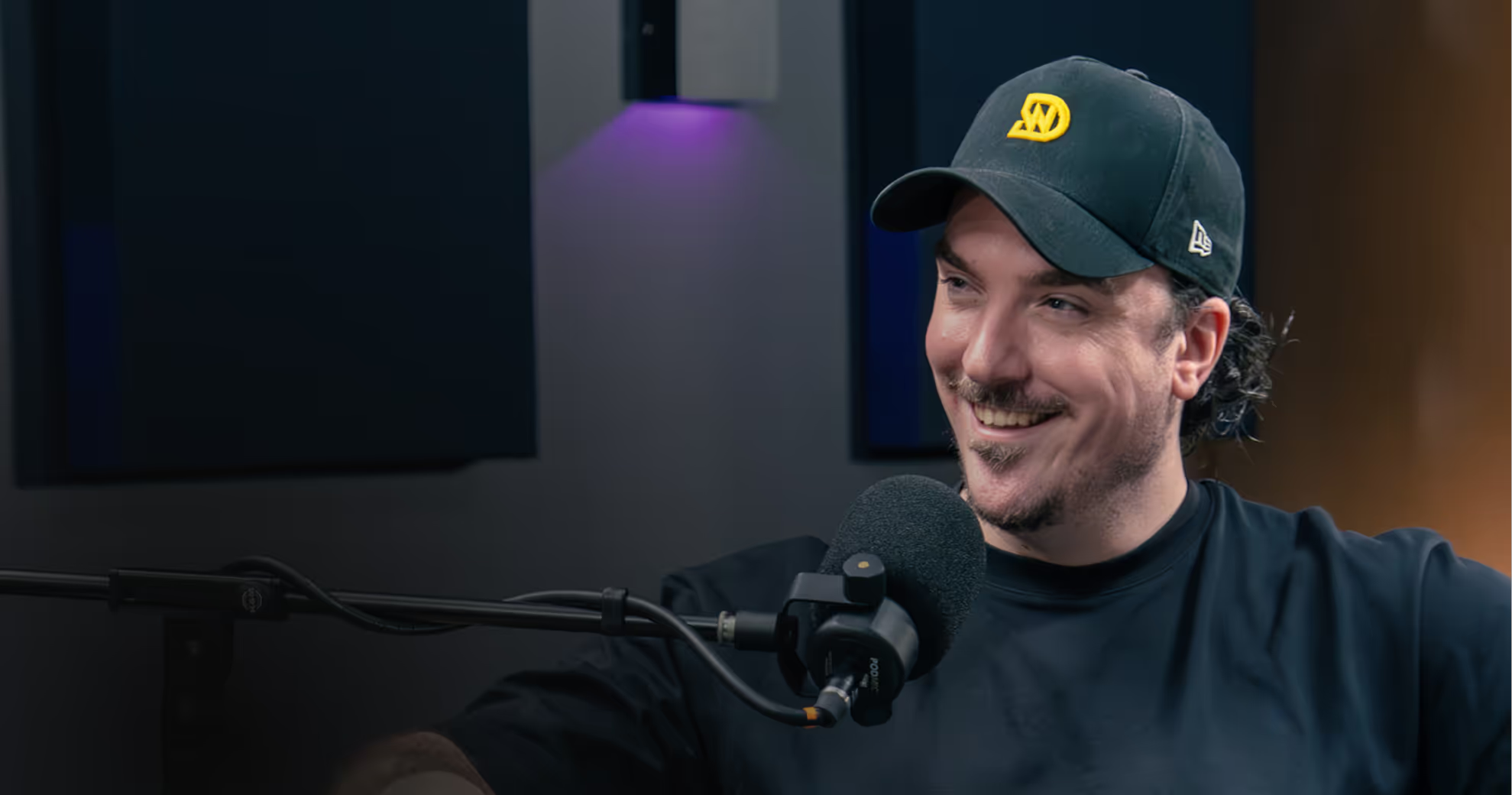
Work With Me
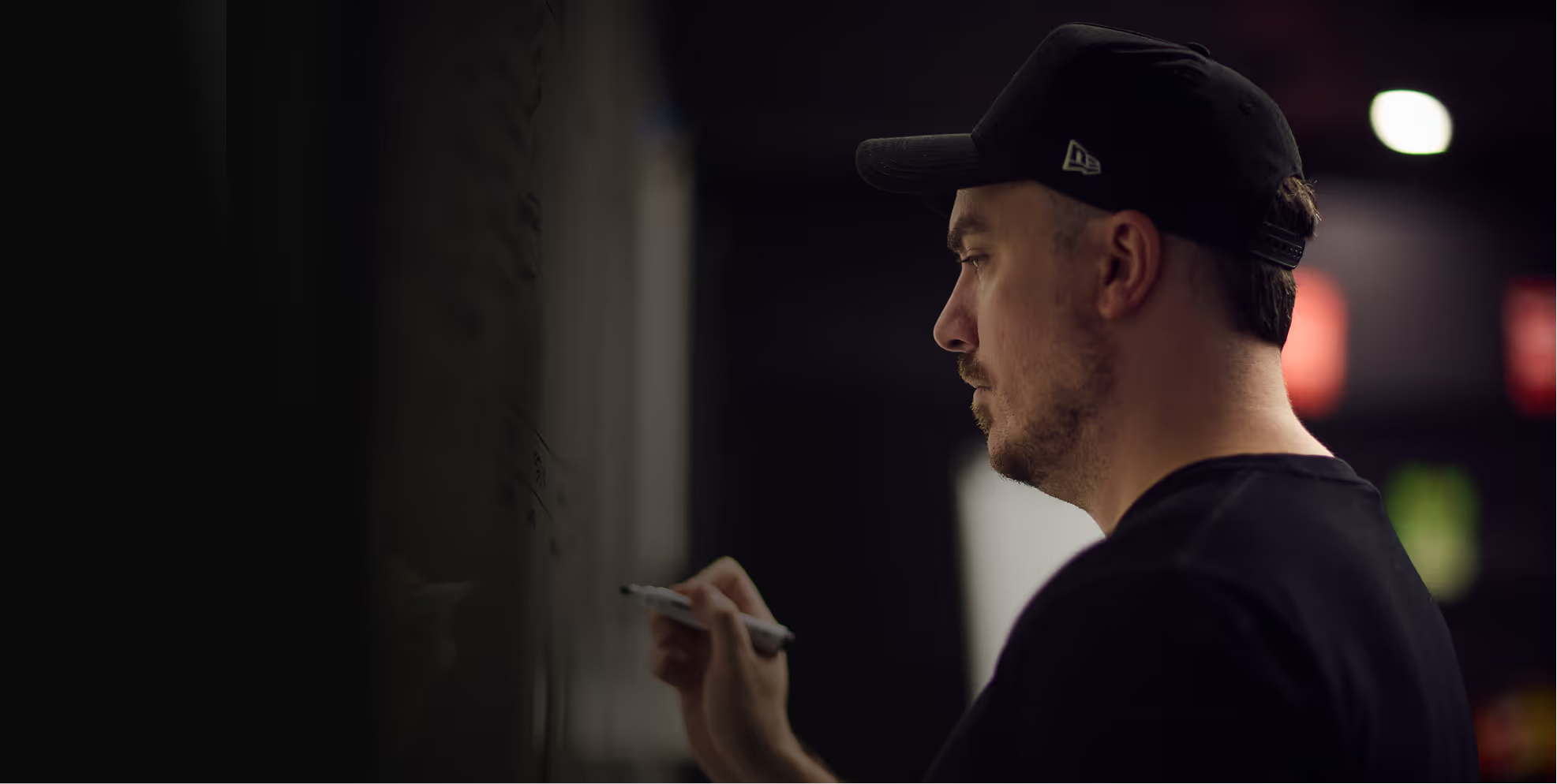
Enquire With Dain’s Team
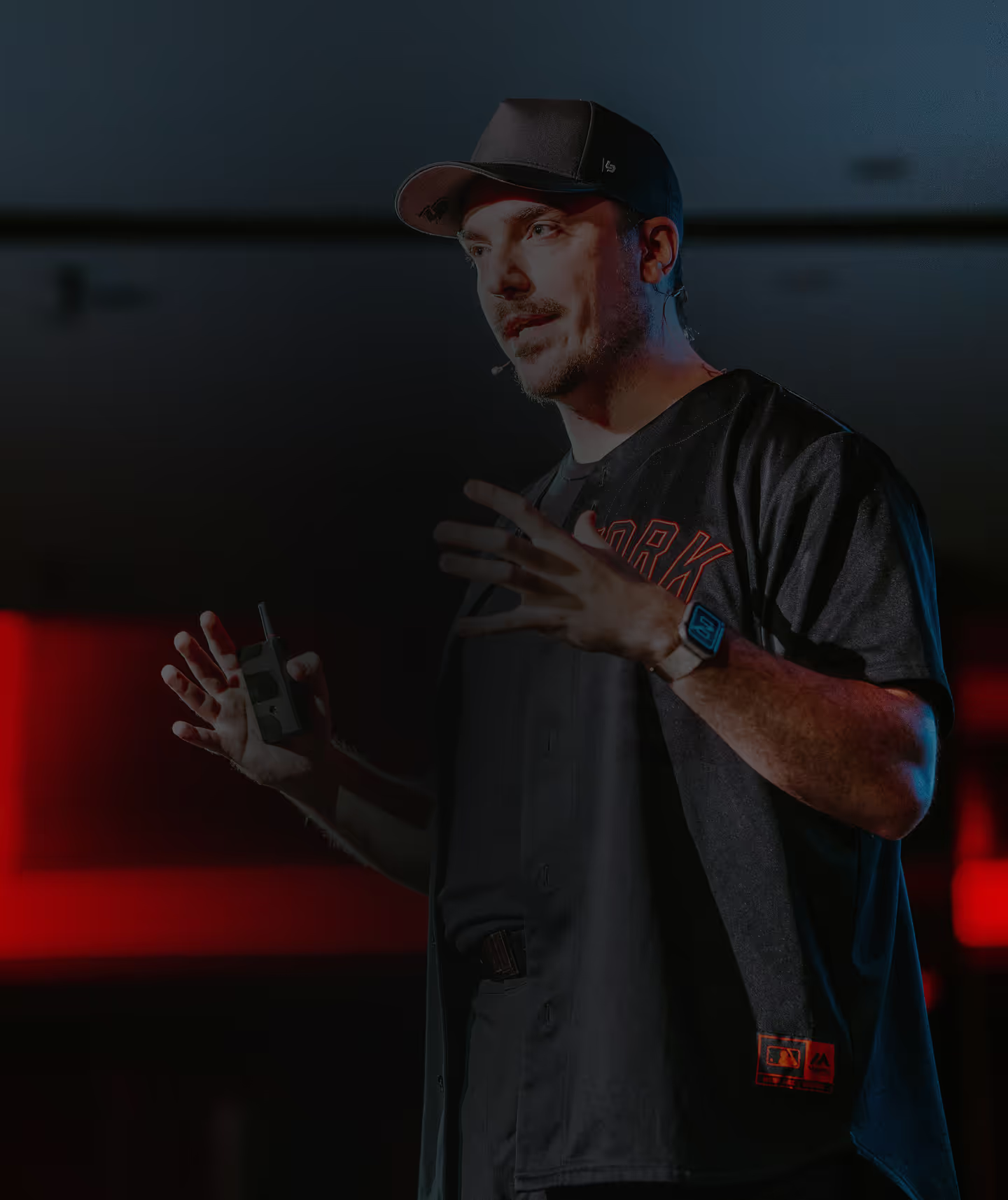
Enquire For Speaking

Let's Get You Branded
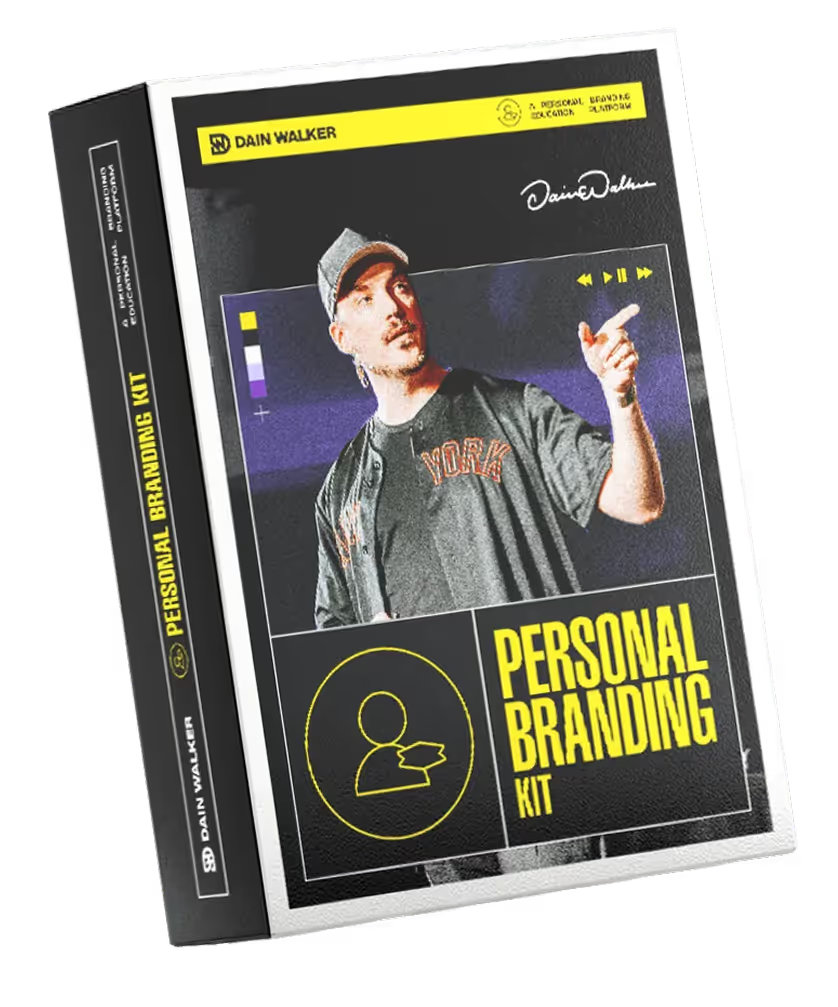
Apply to be a guest
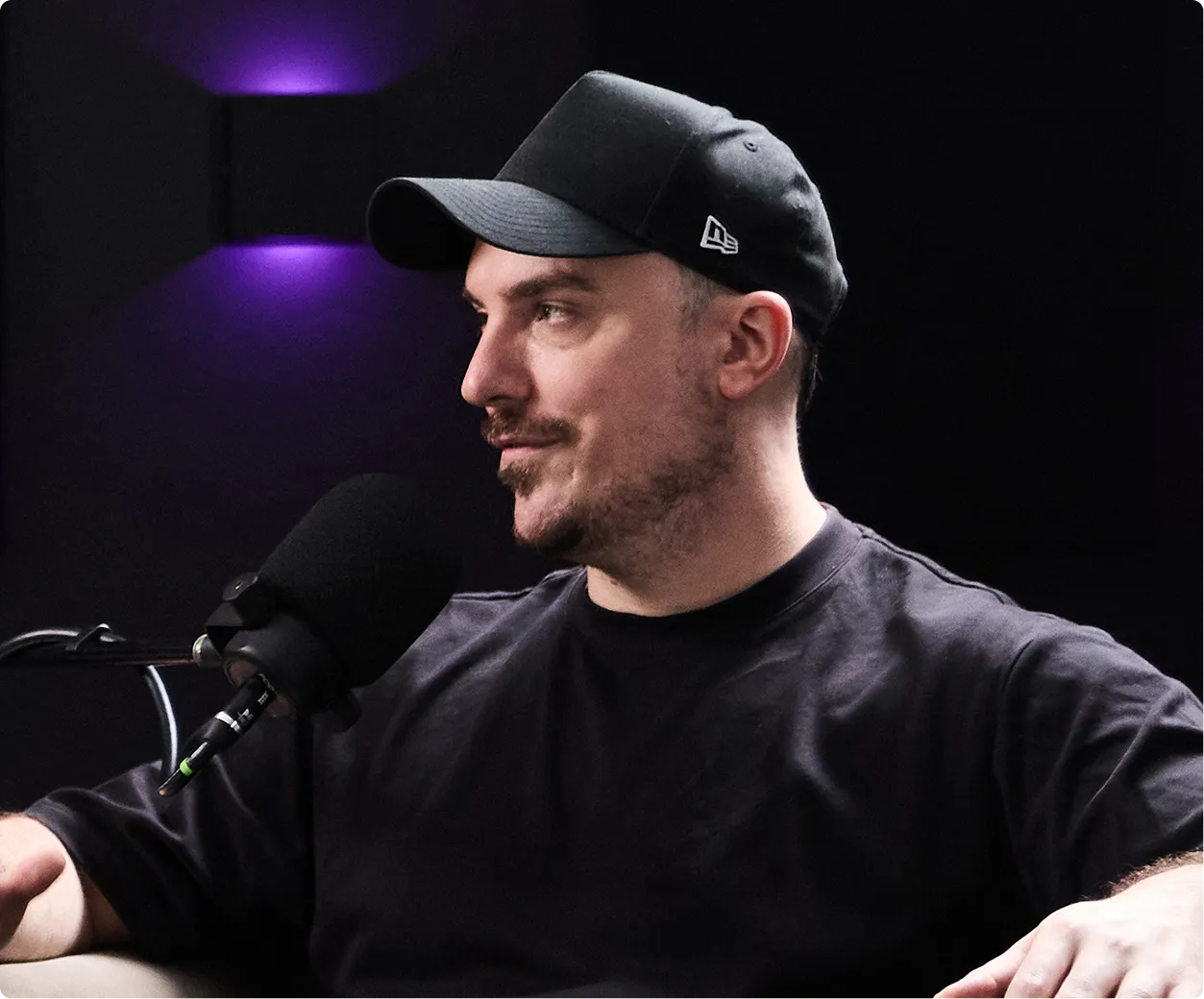
Dive into insights from industry leaders and experts.

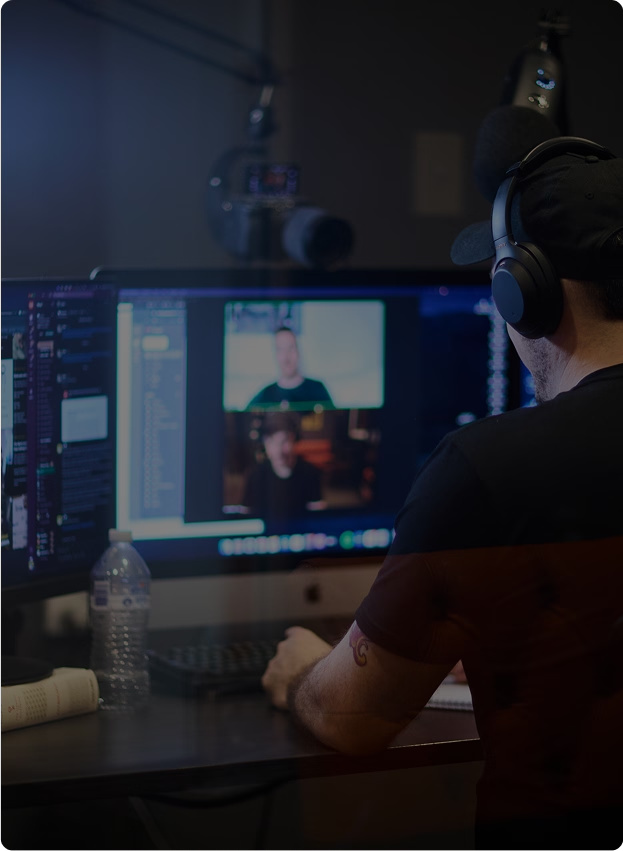
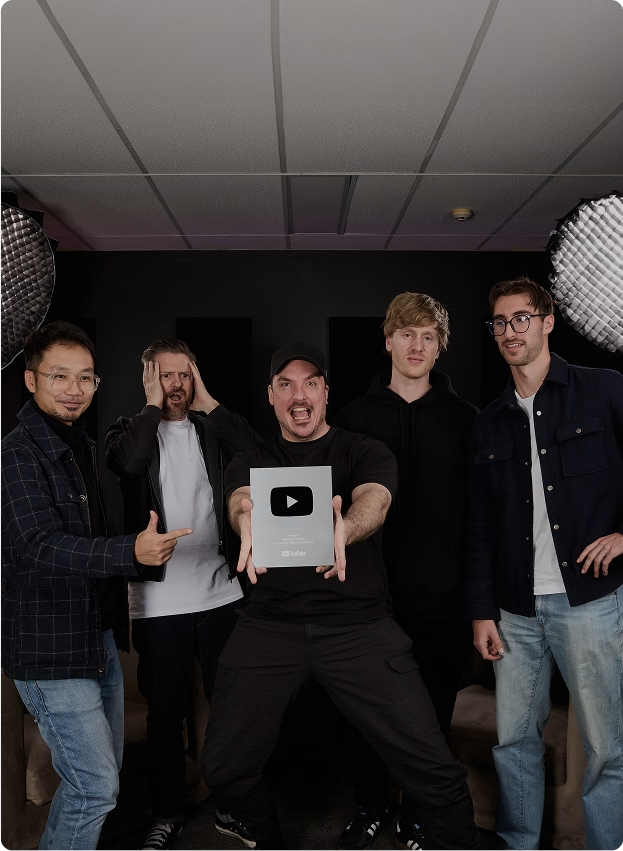
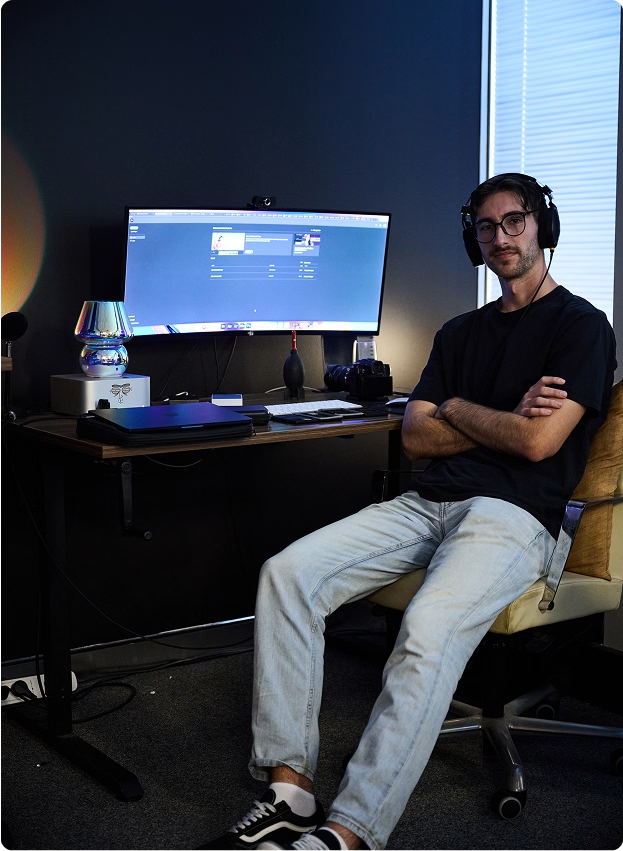
Stream now
Dive into expert advice and industry trends.
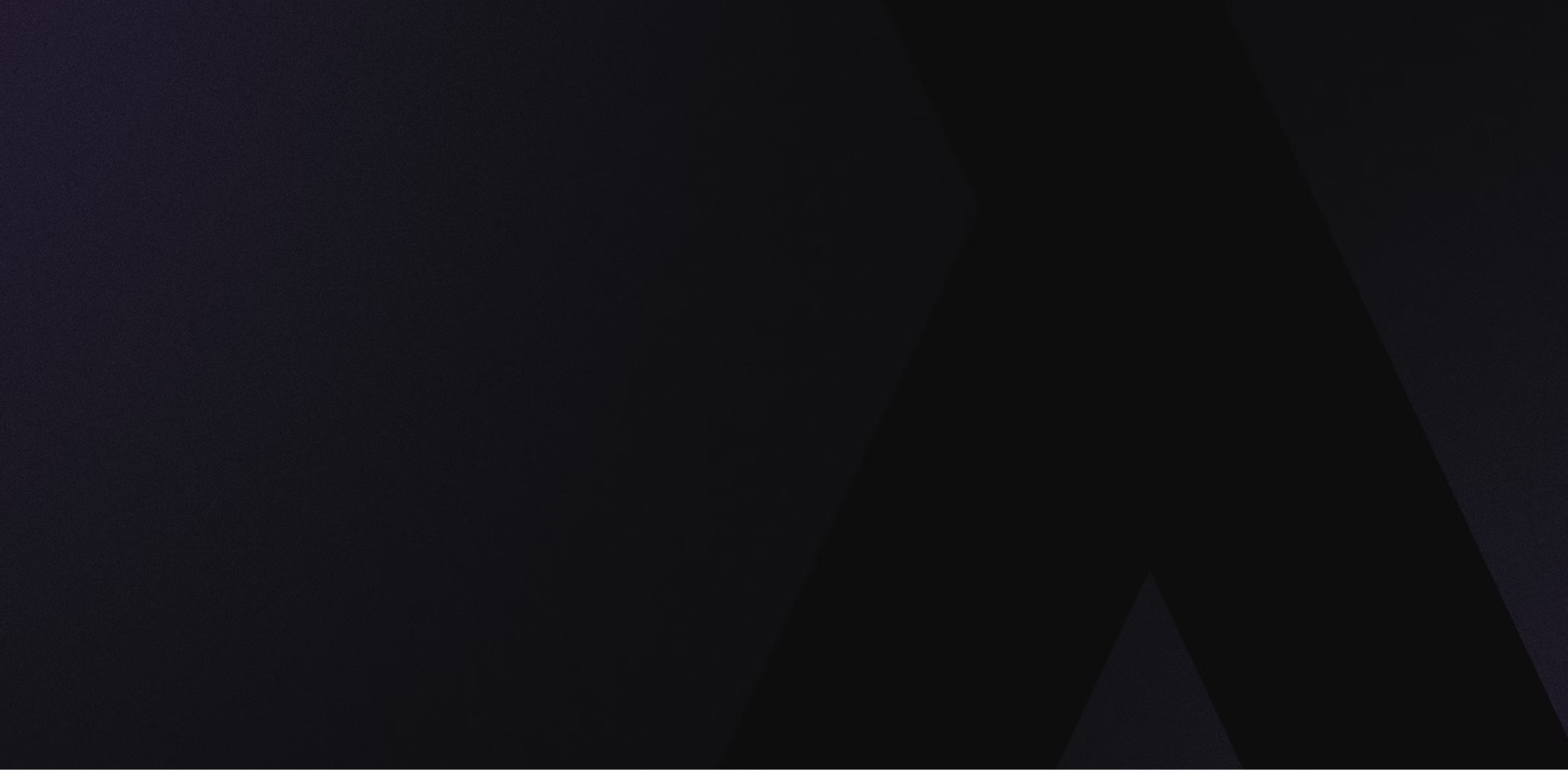

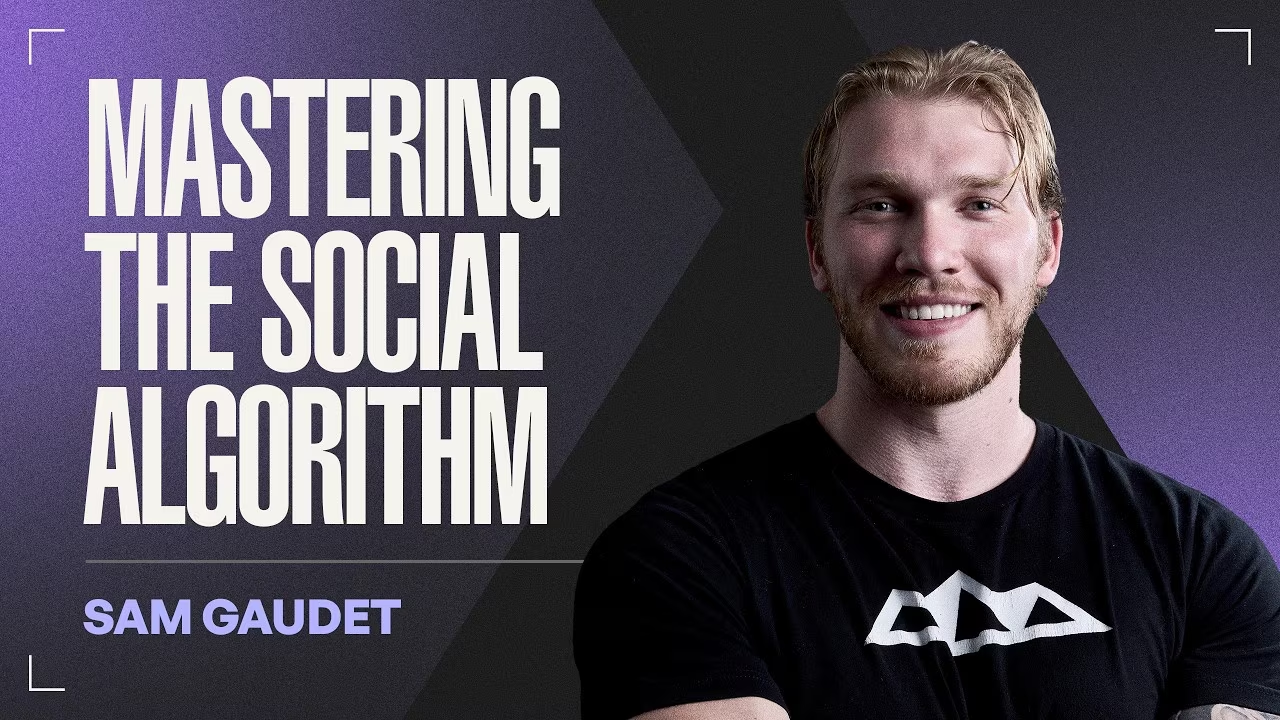
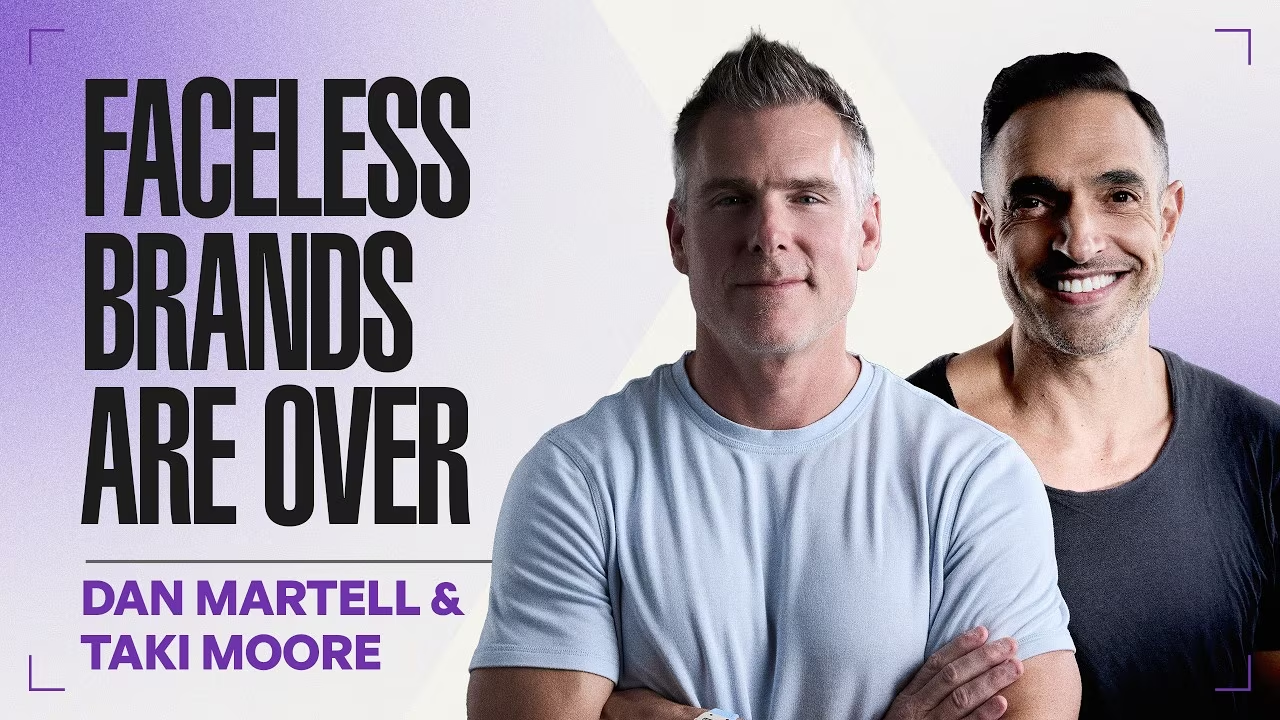
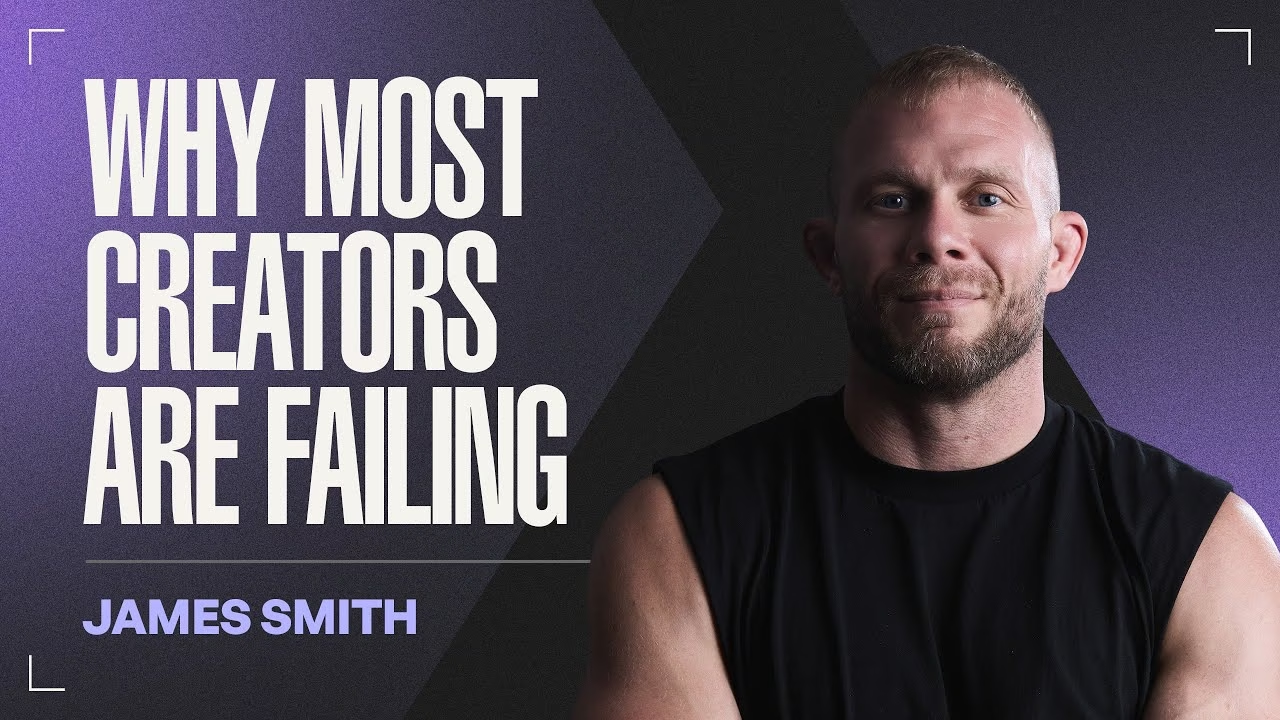
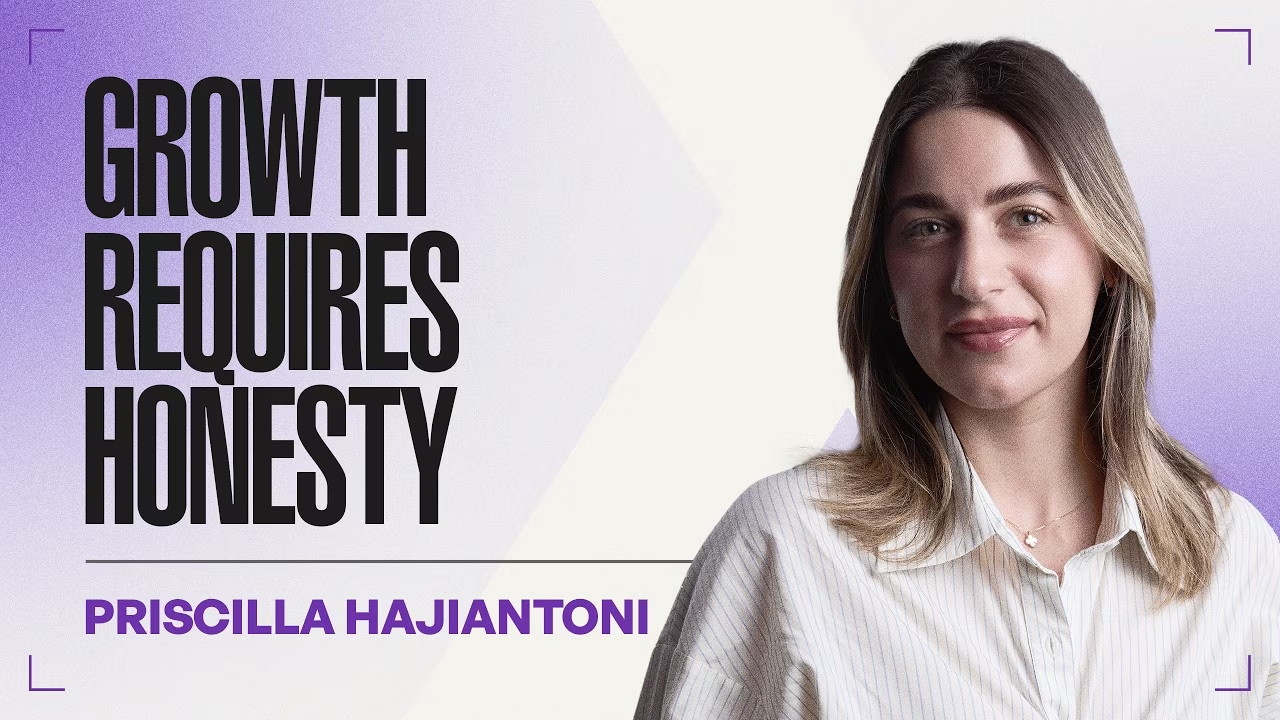
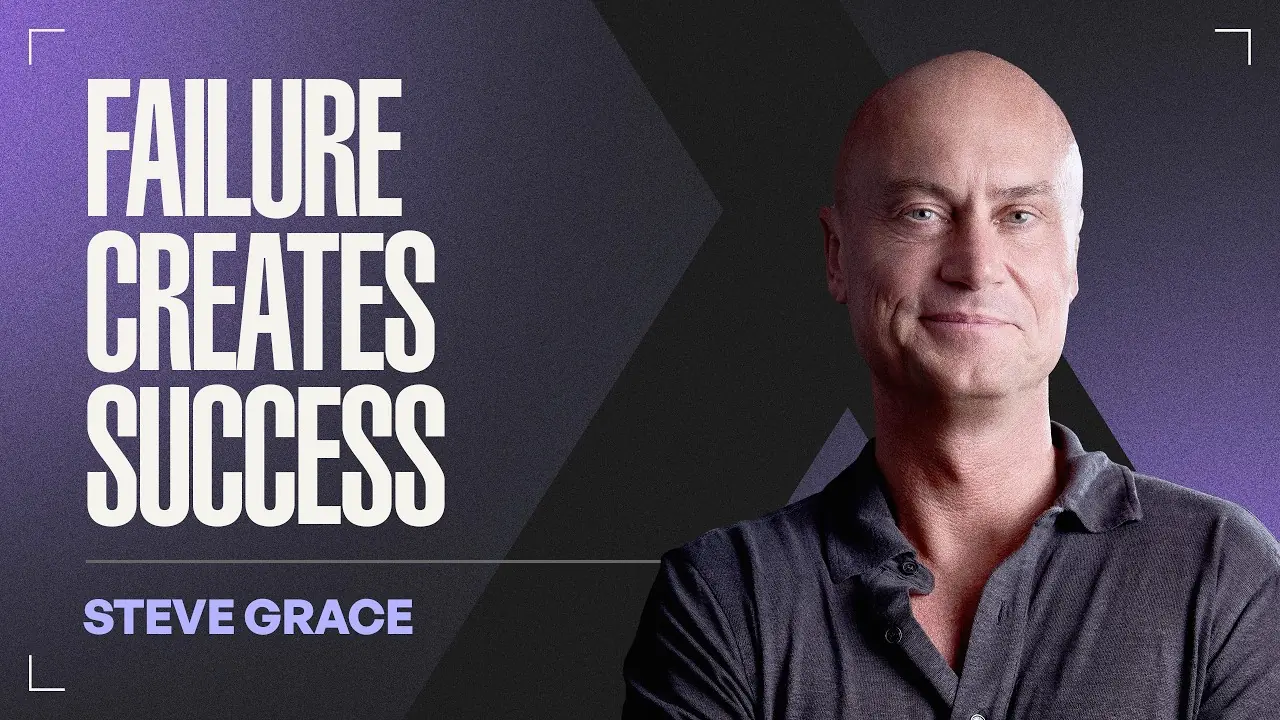
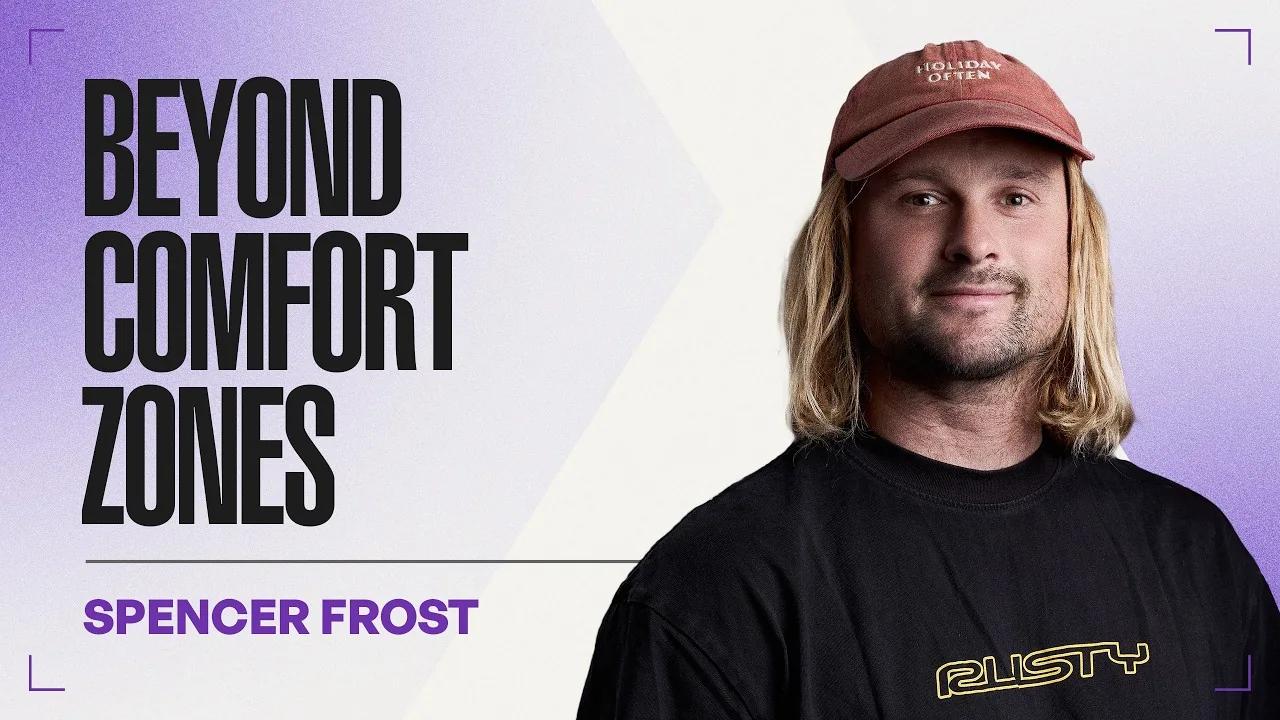
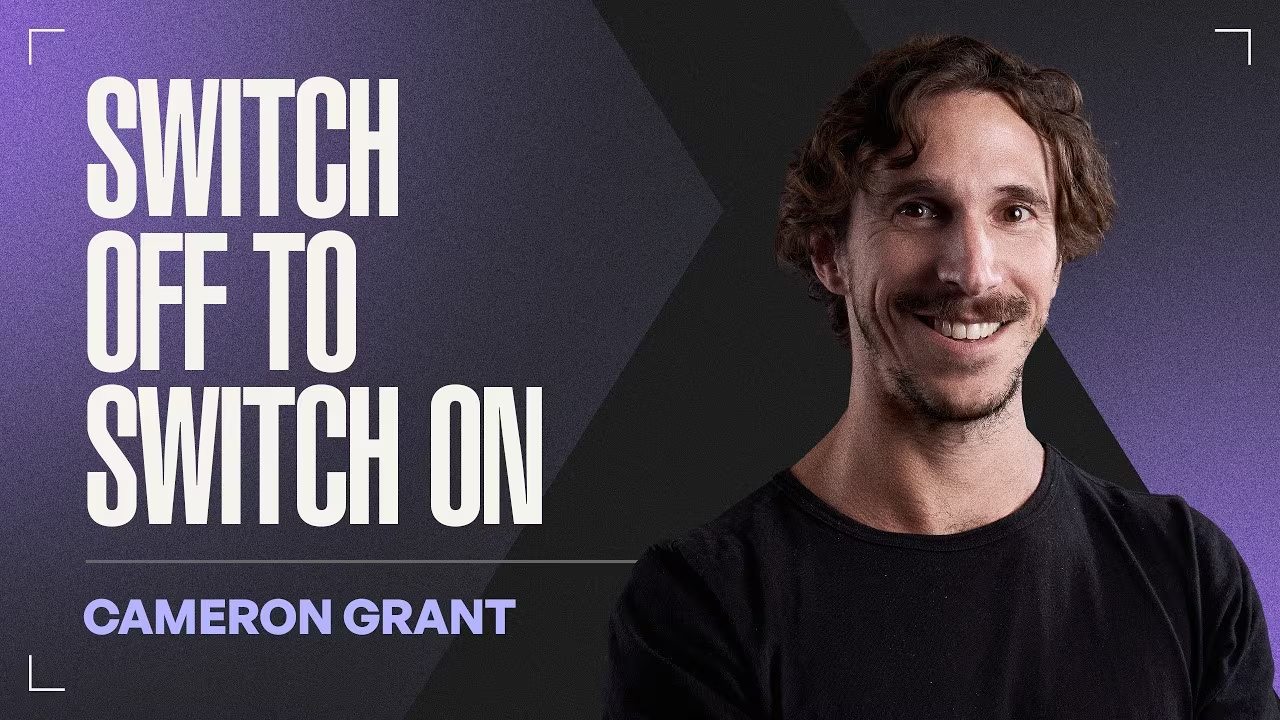
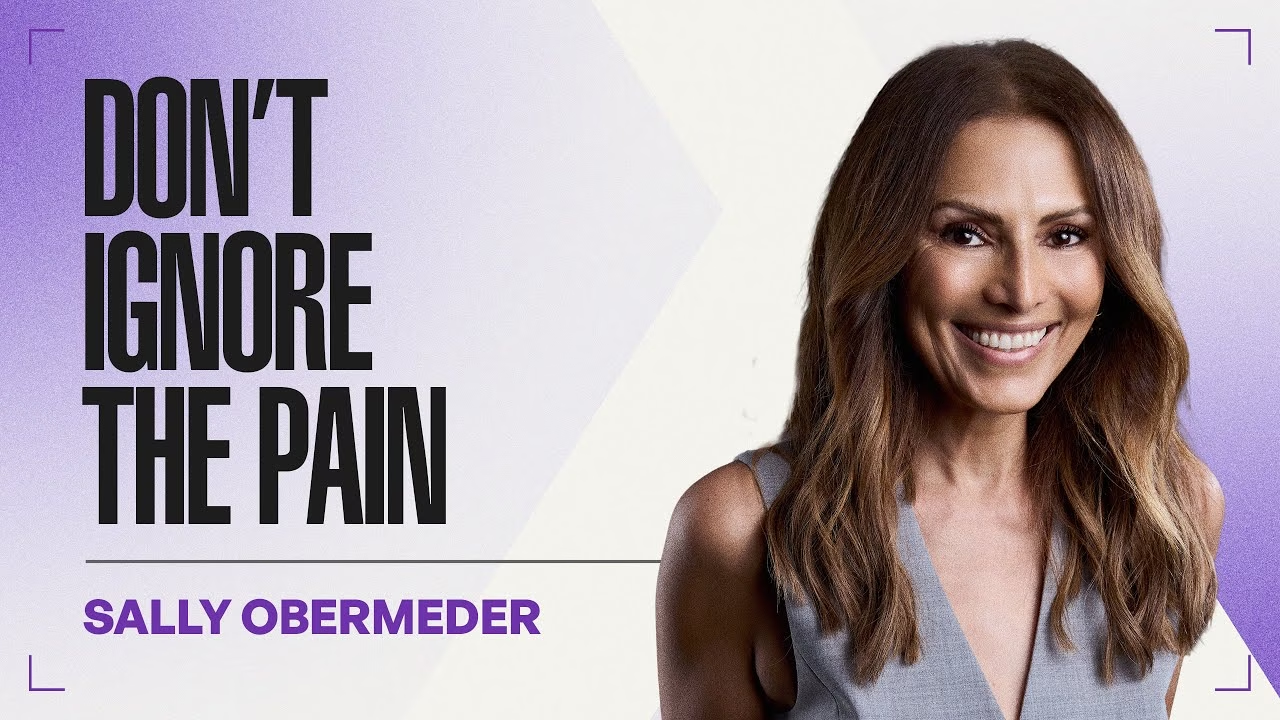
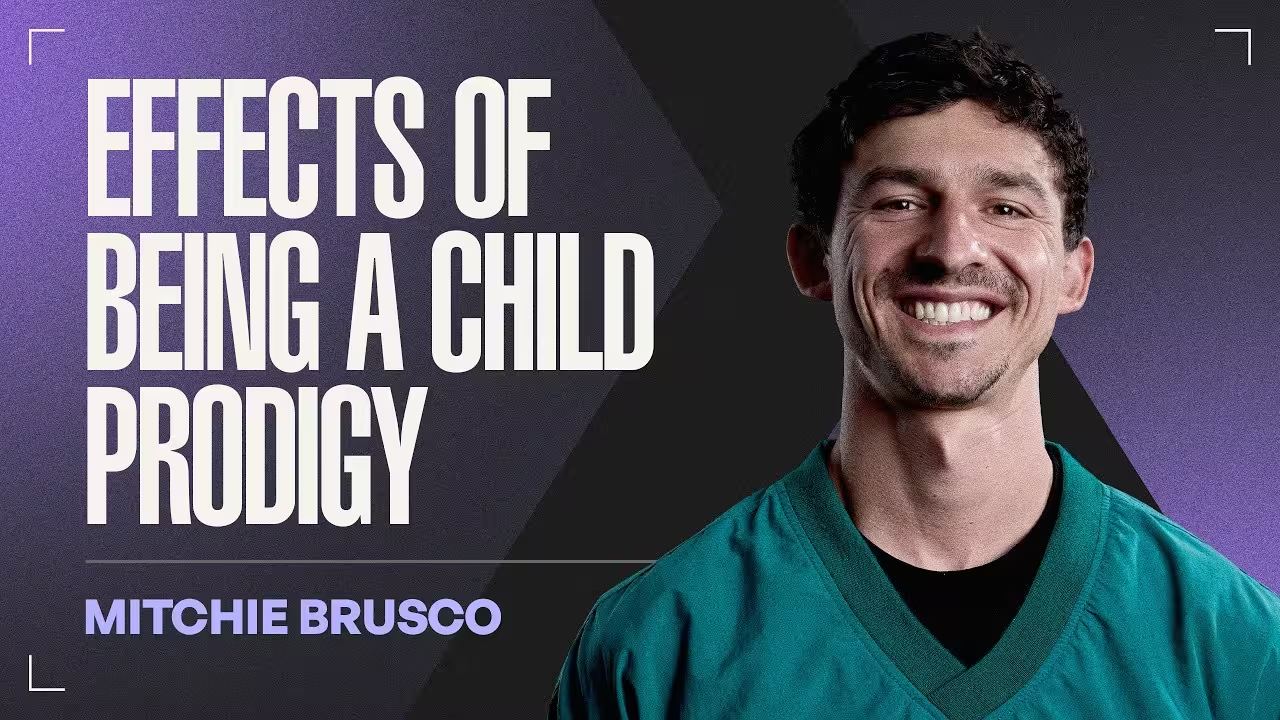
.avif)
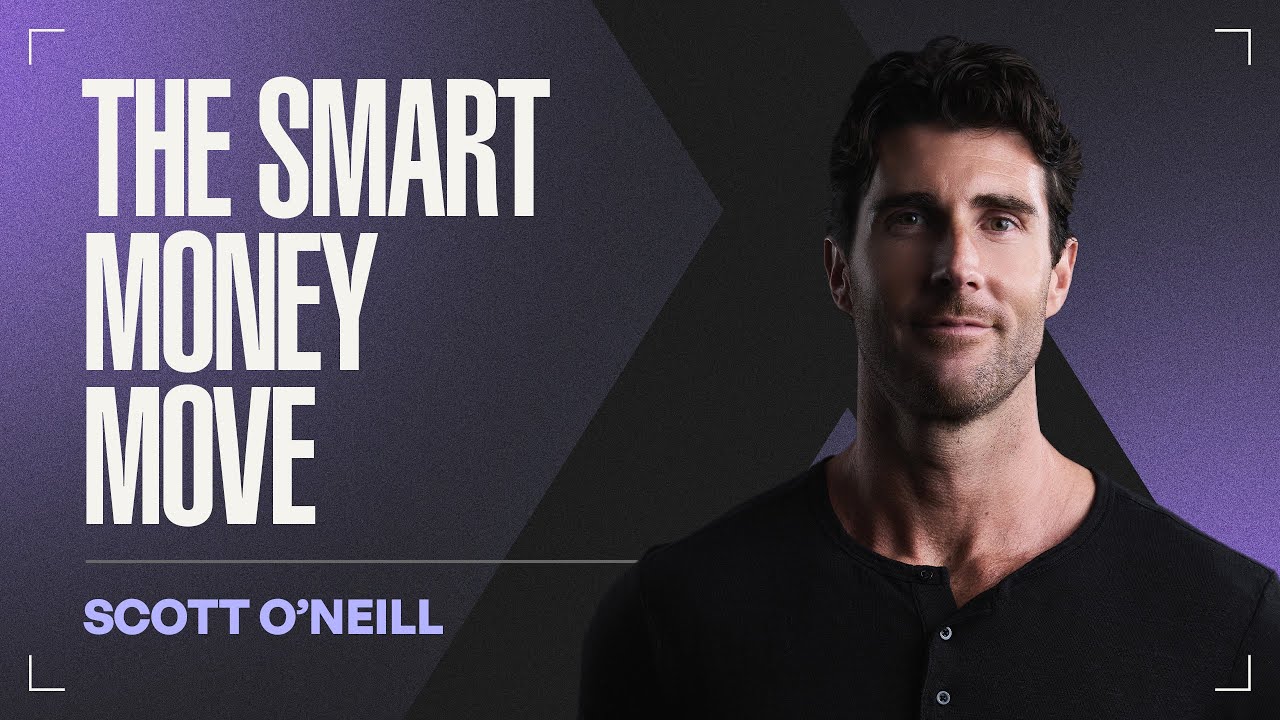
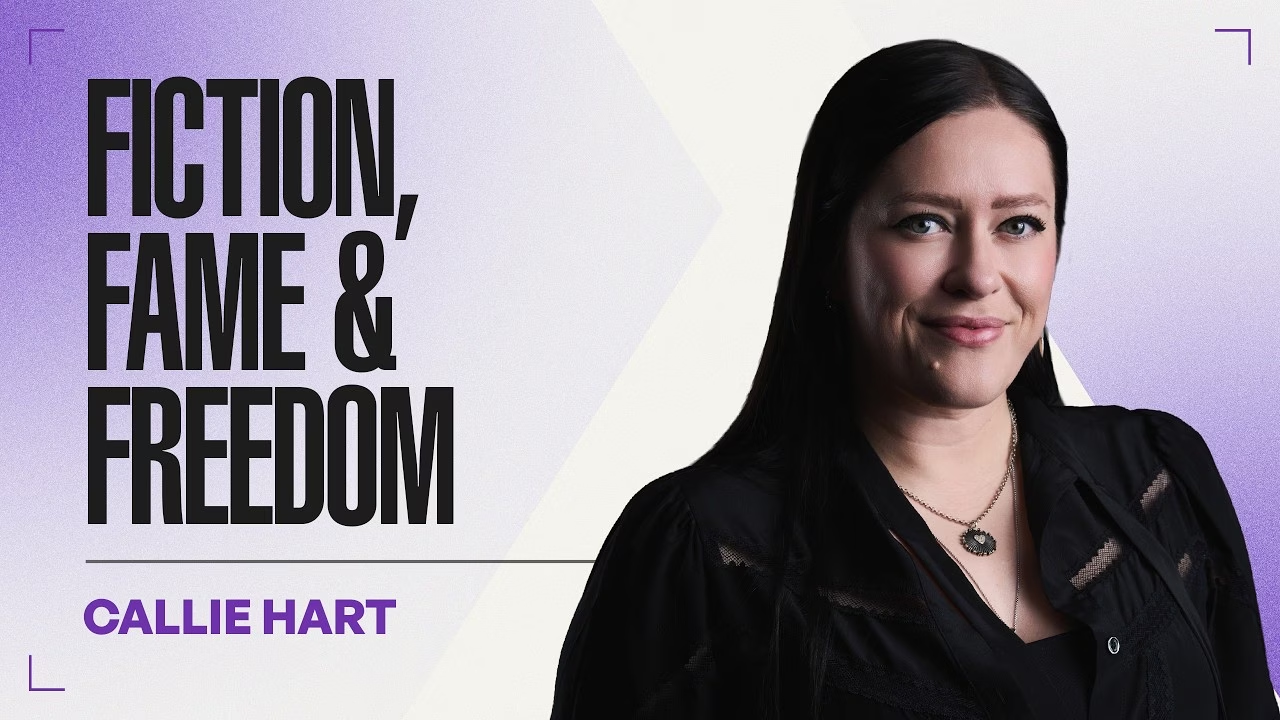

.avif)
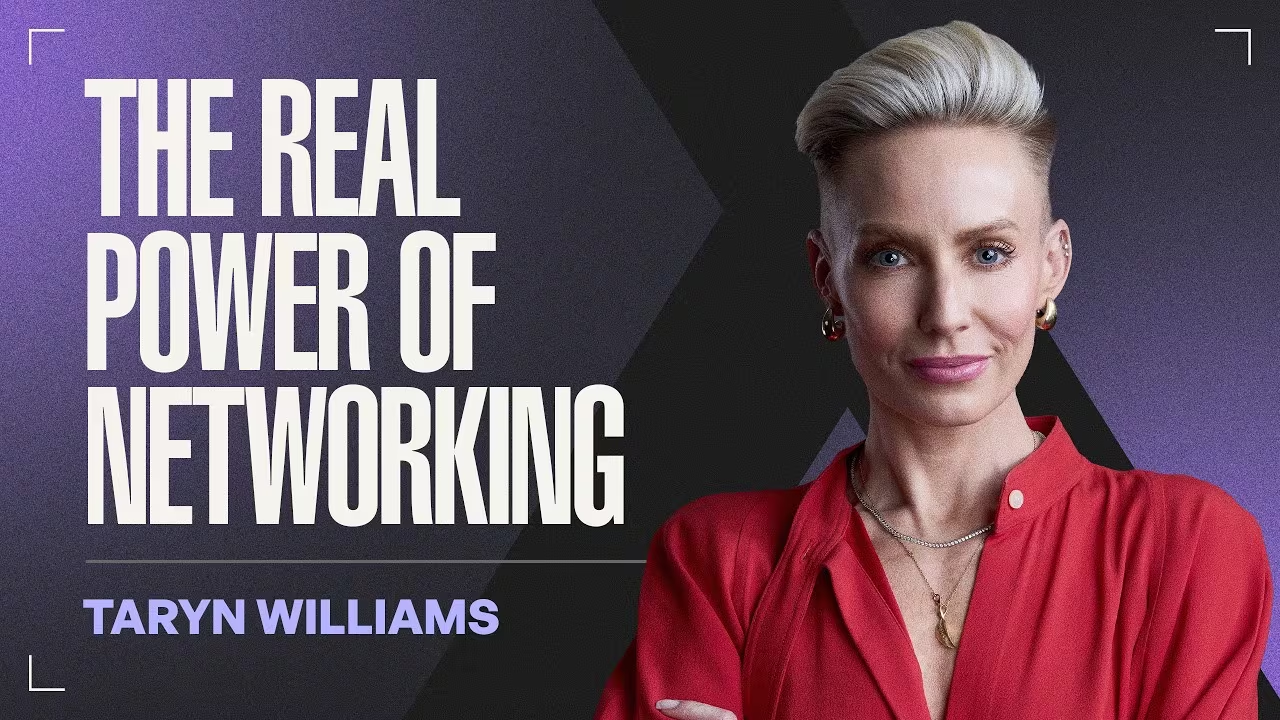

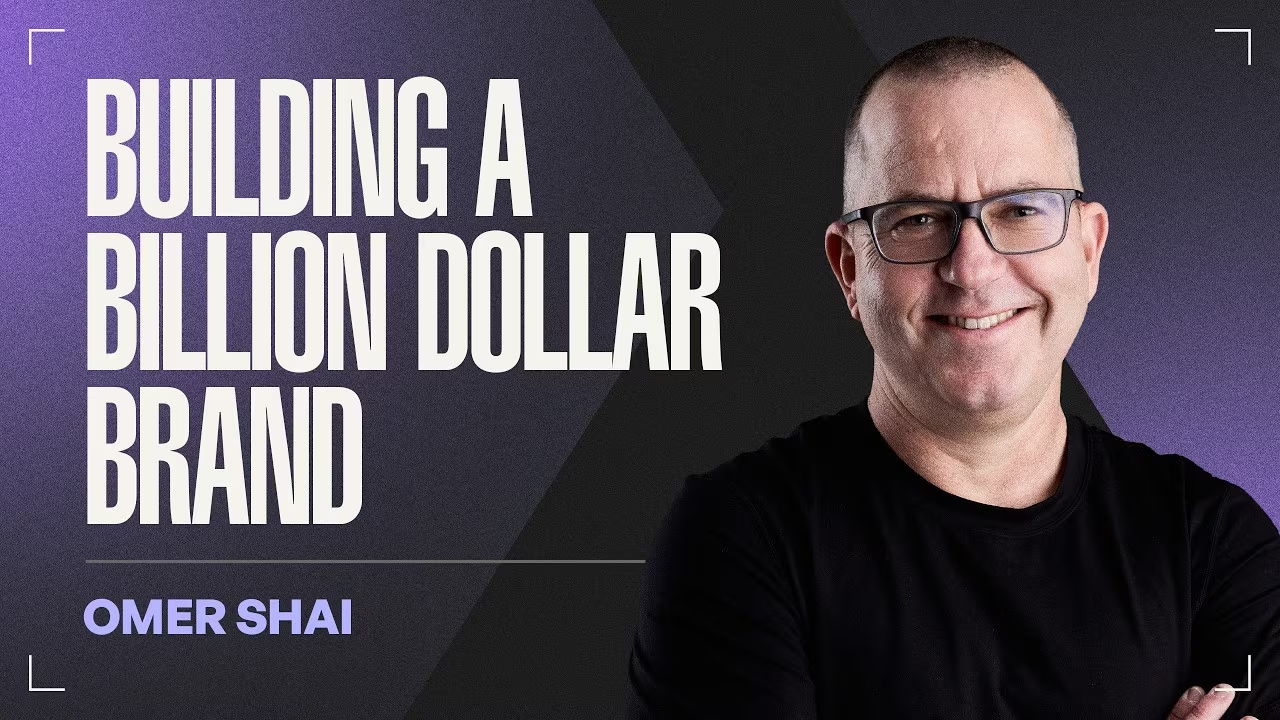
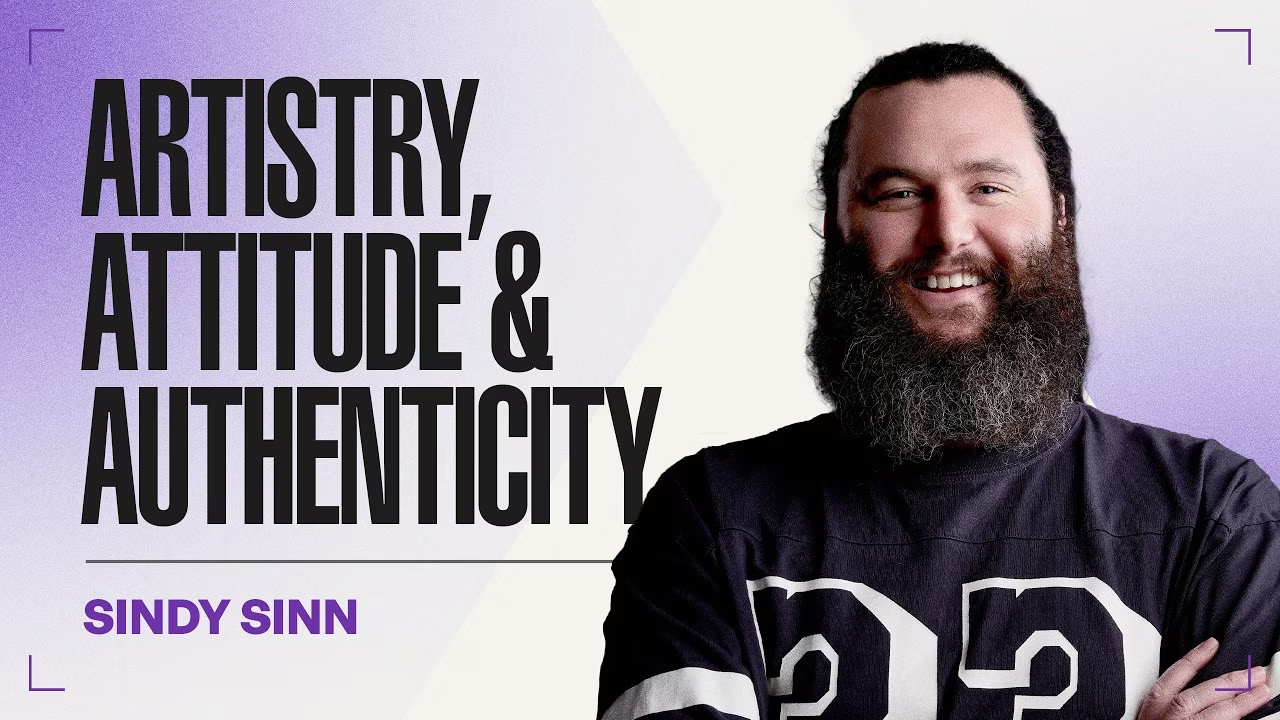
%20(1).avif)
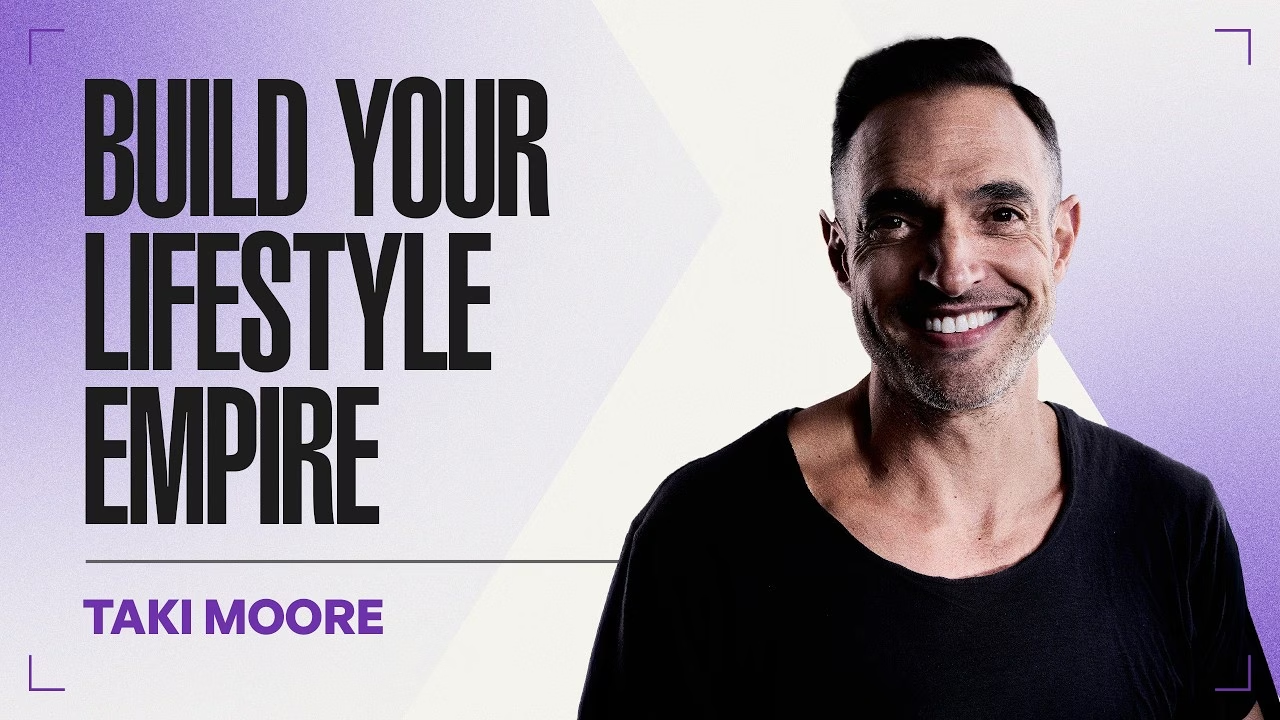
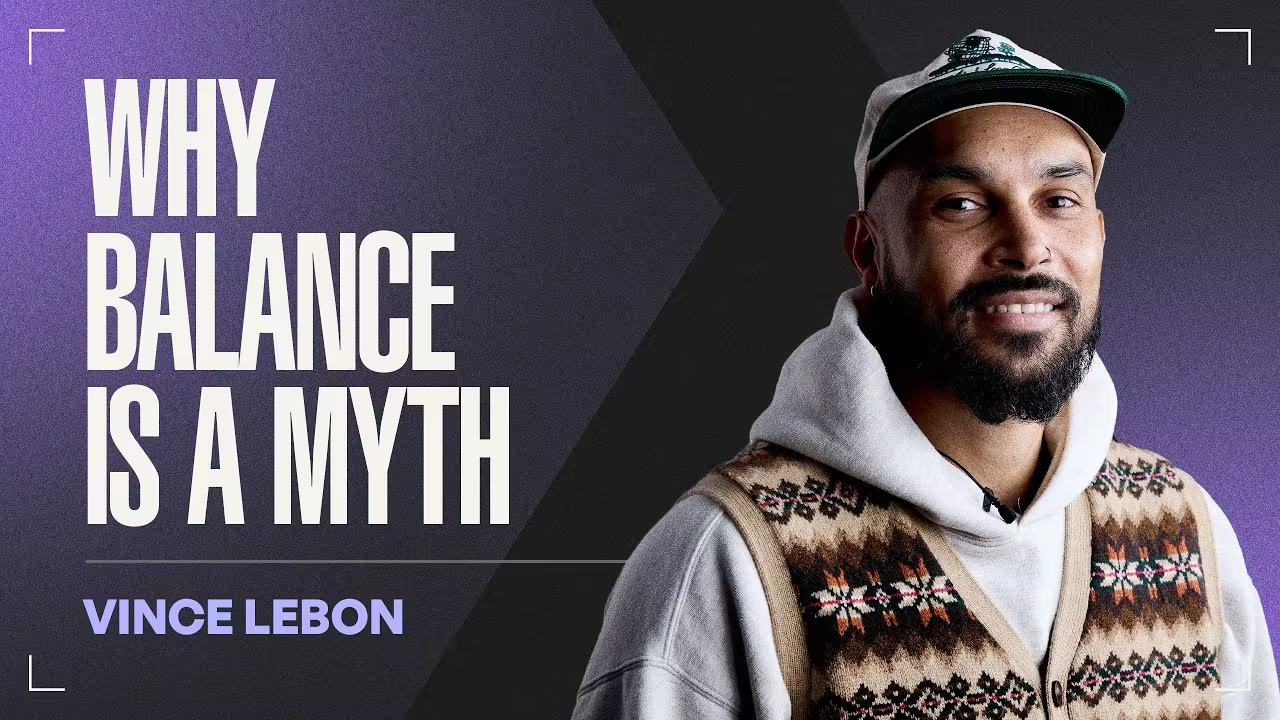

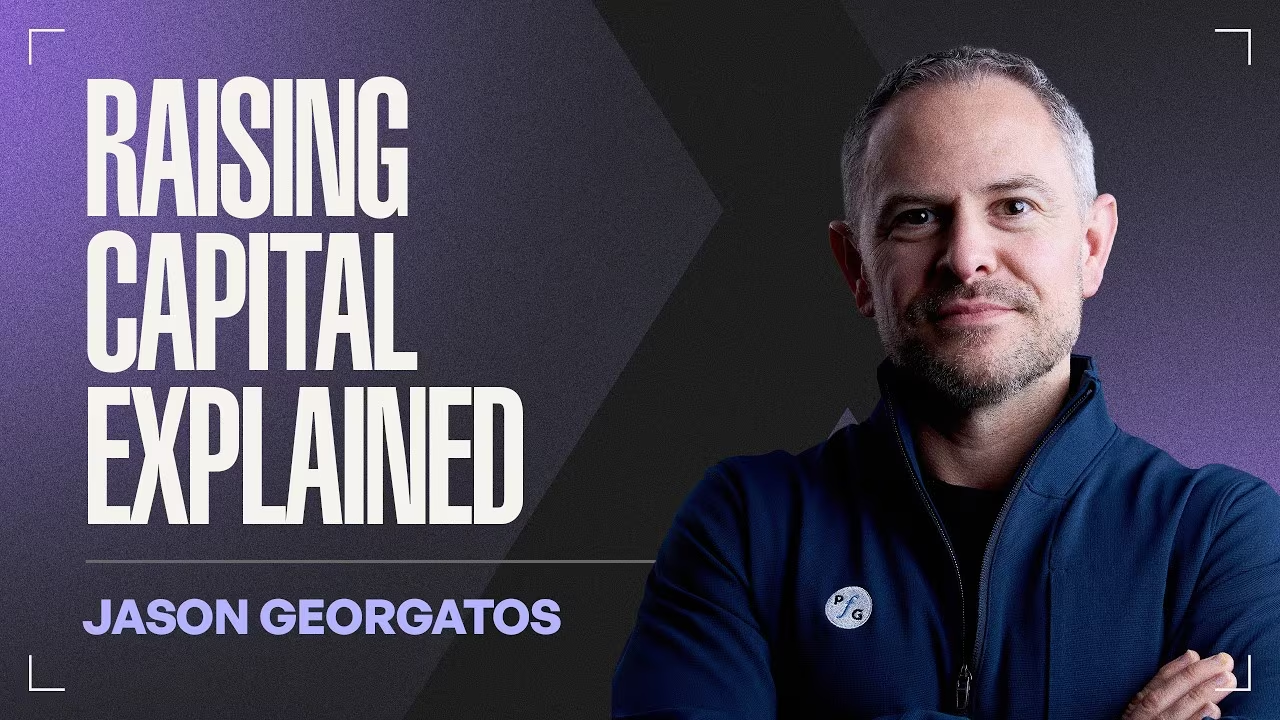
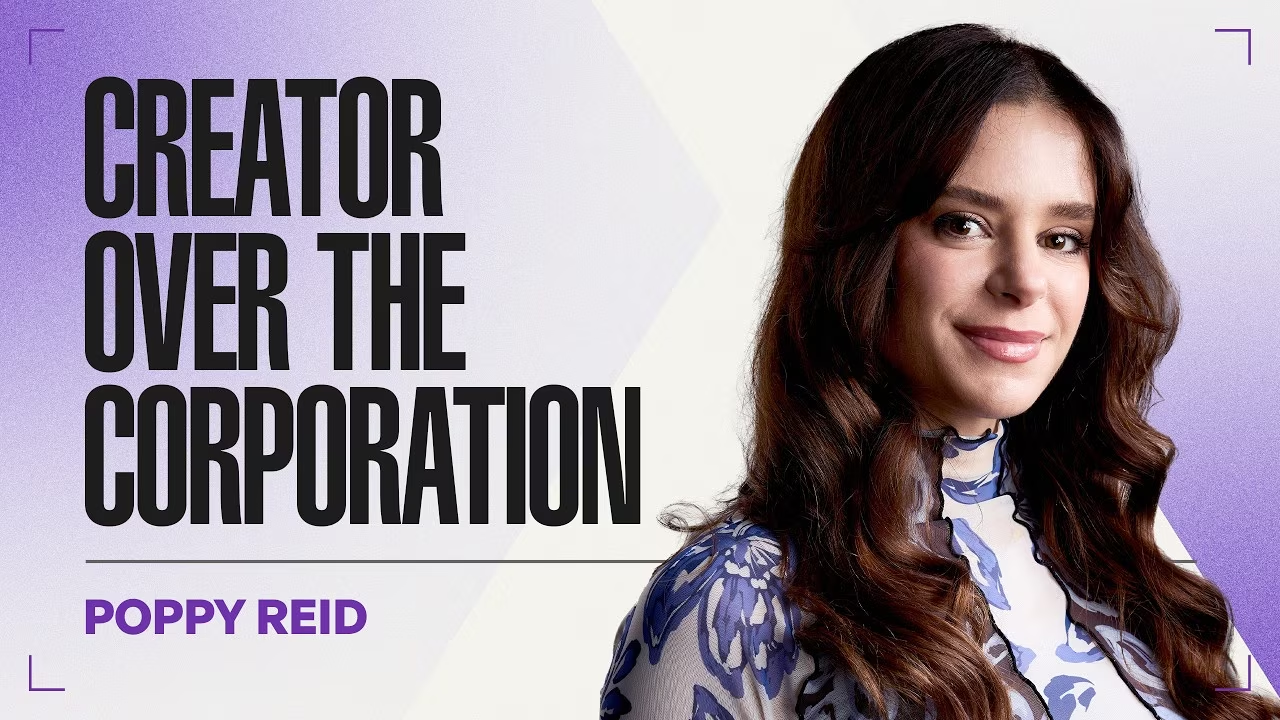
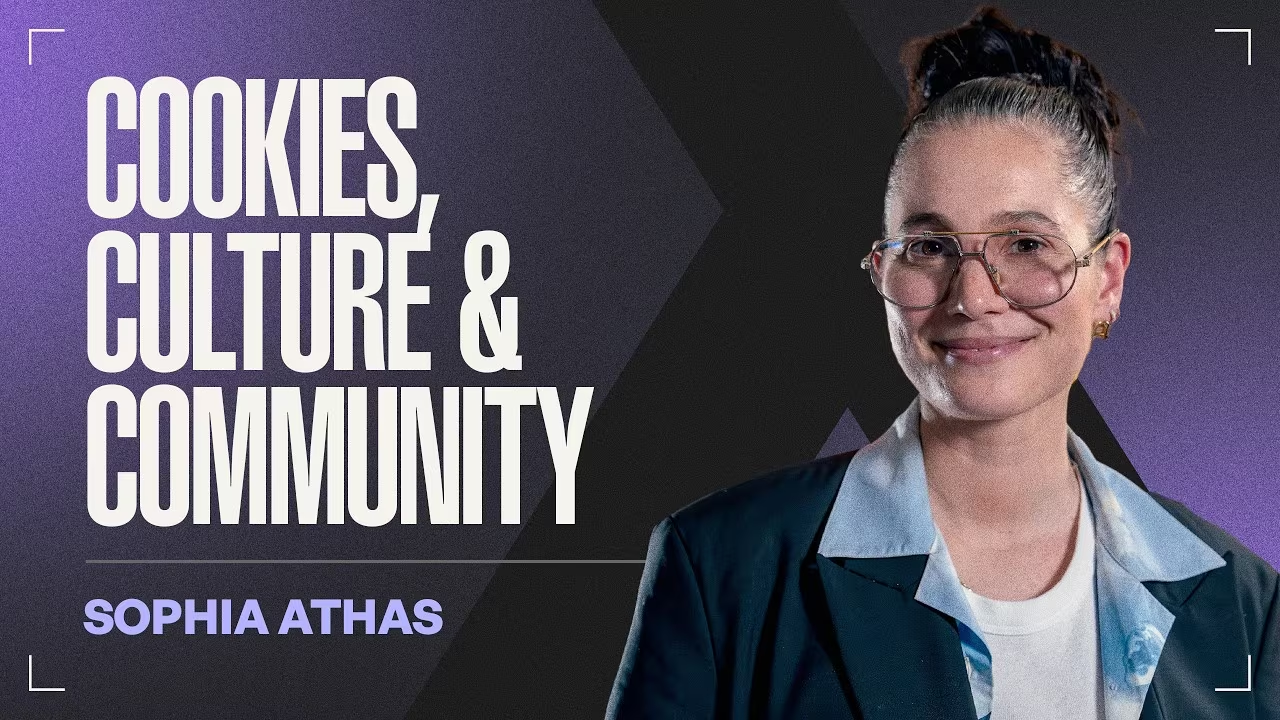

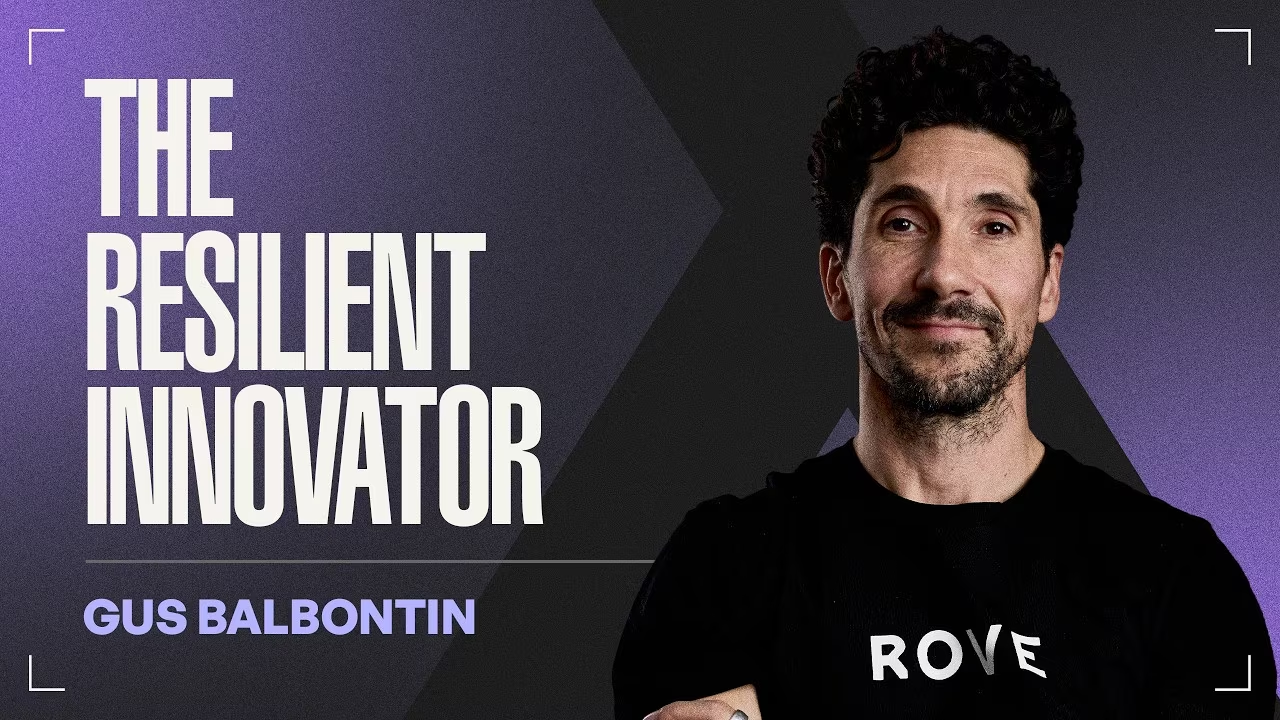
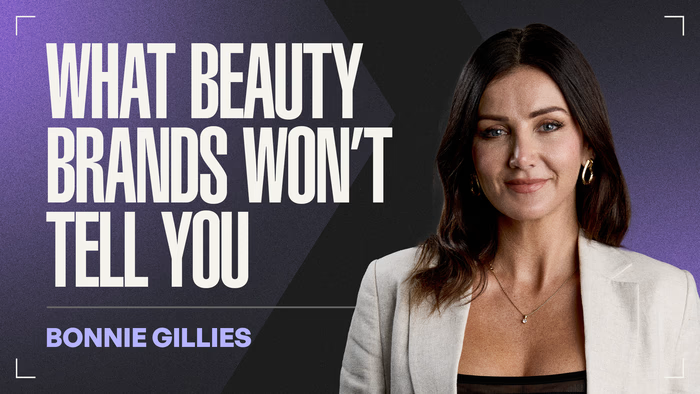


.avif)

